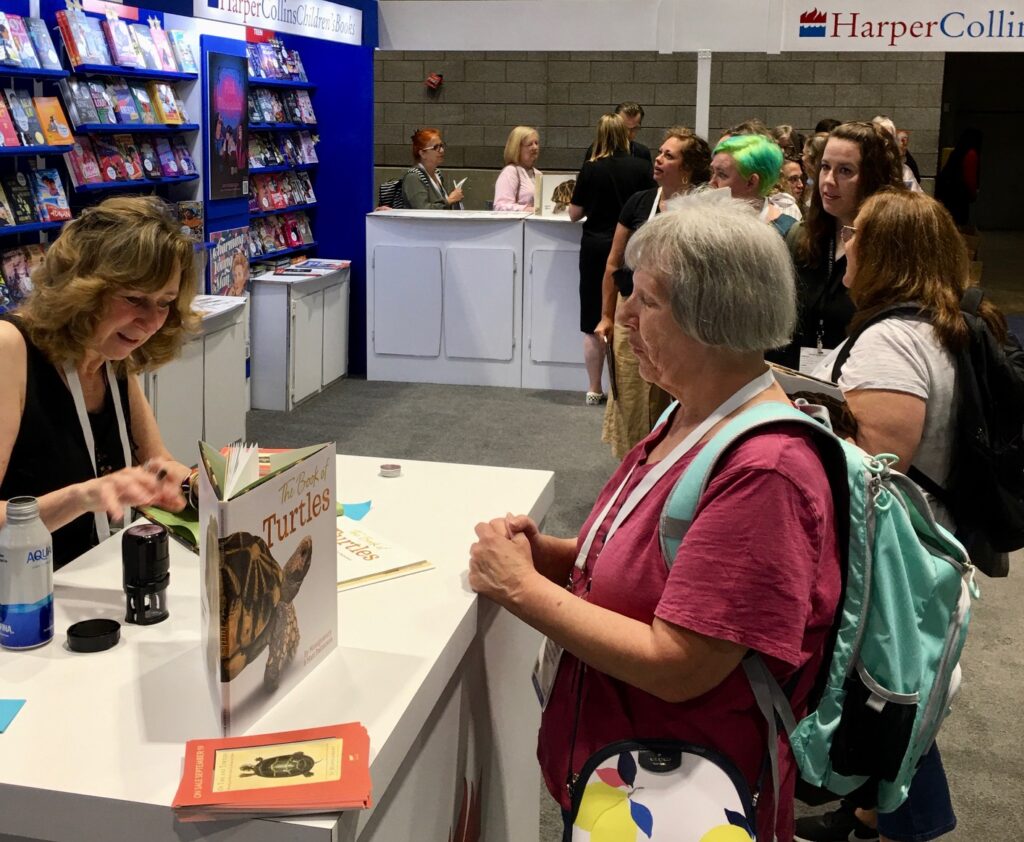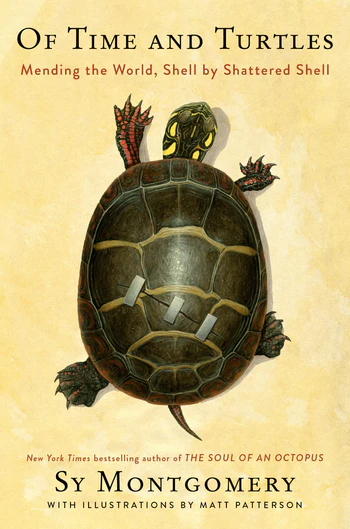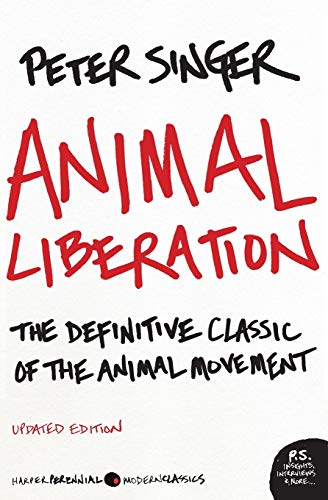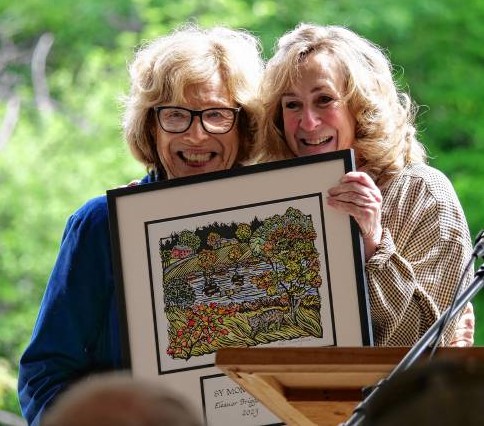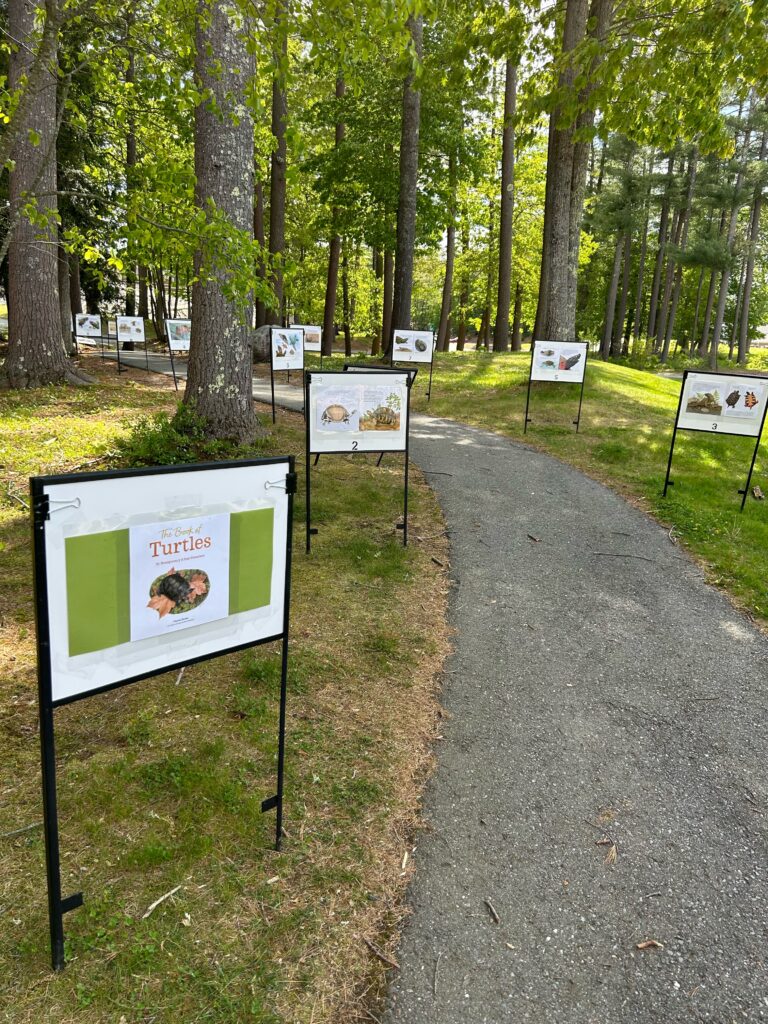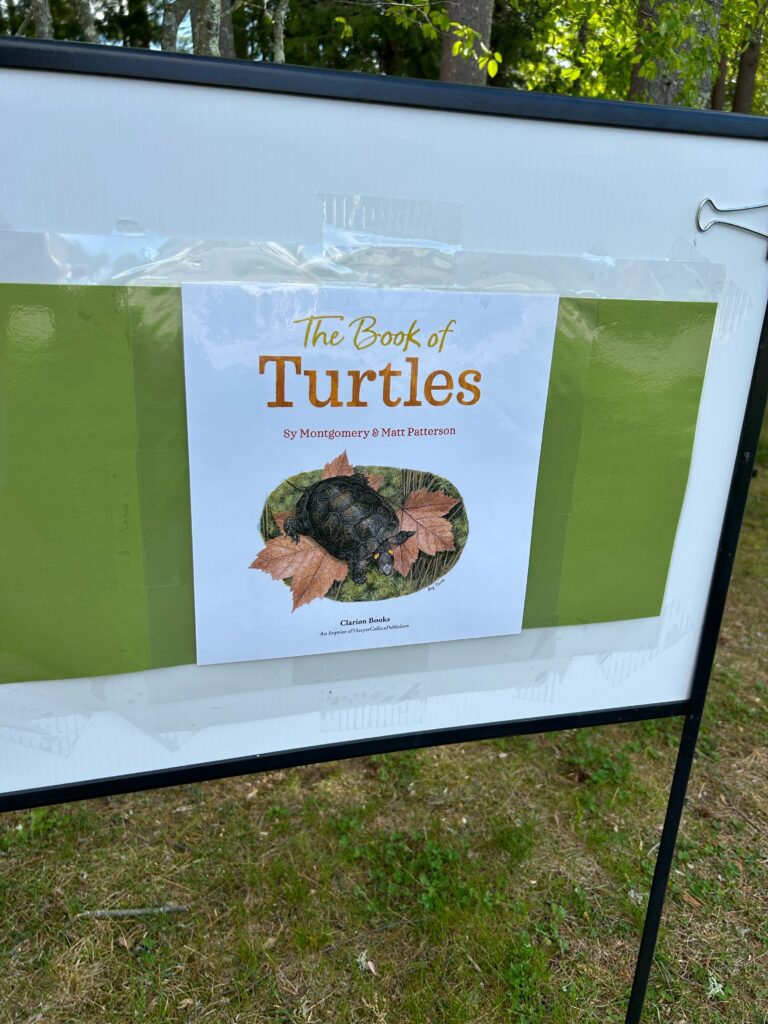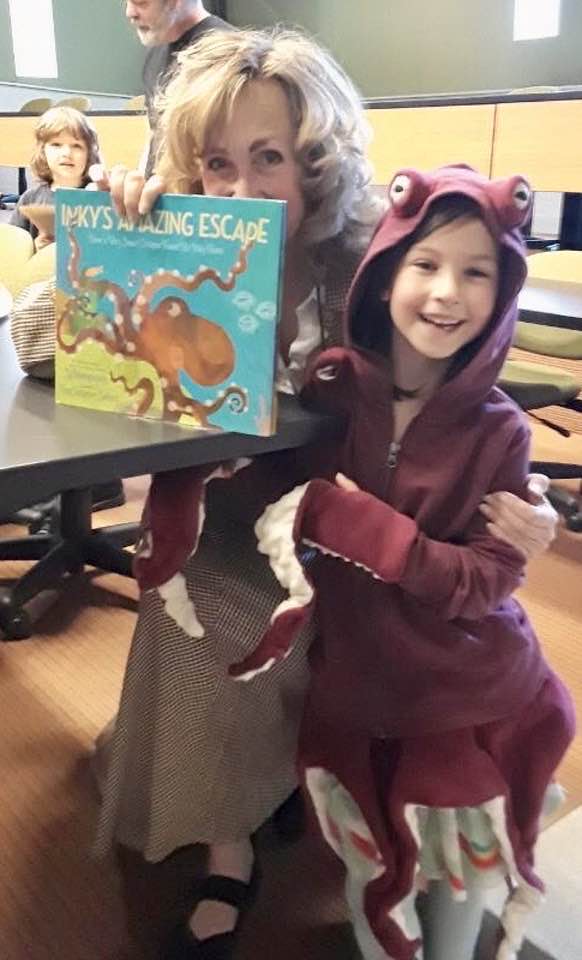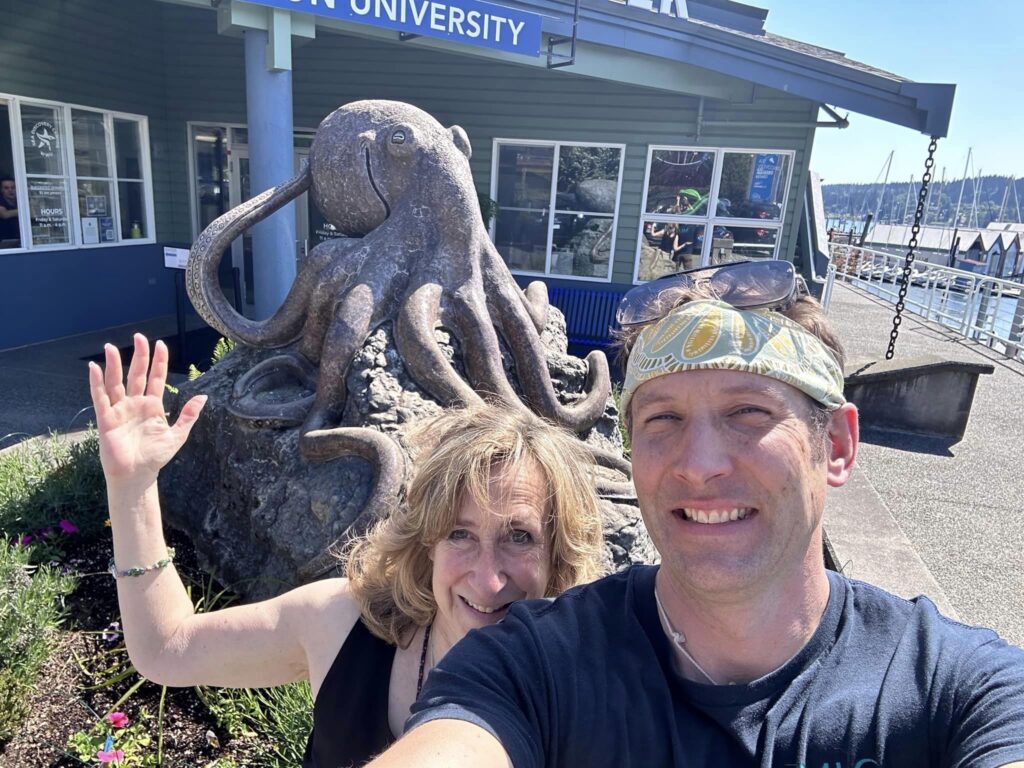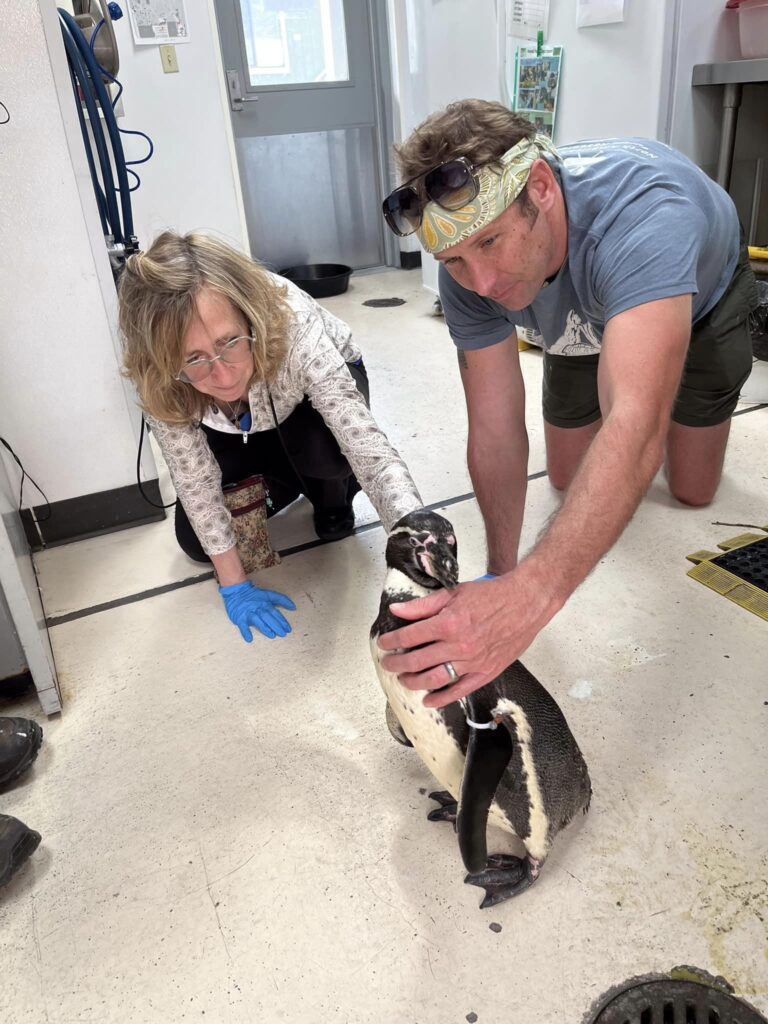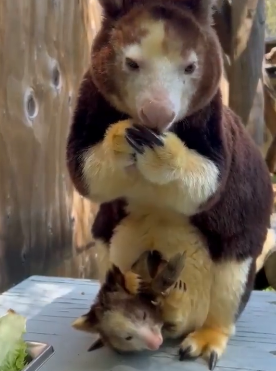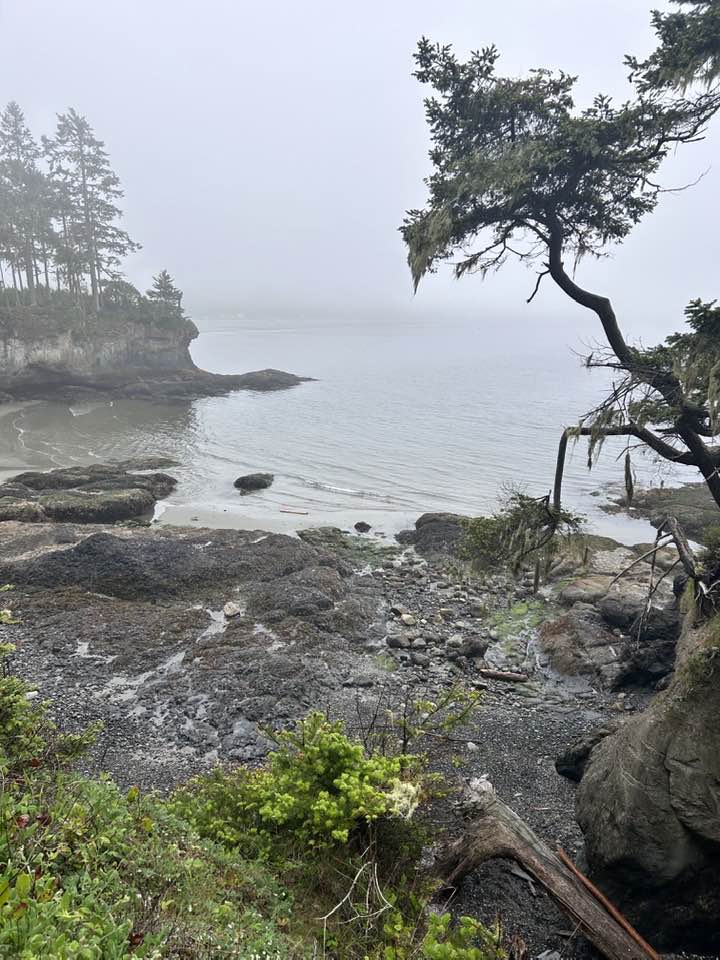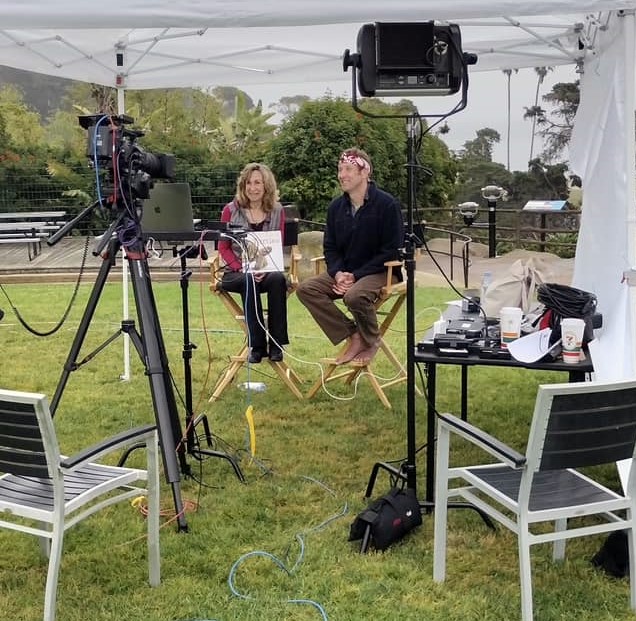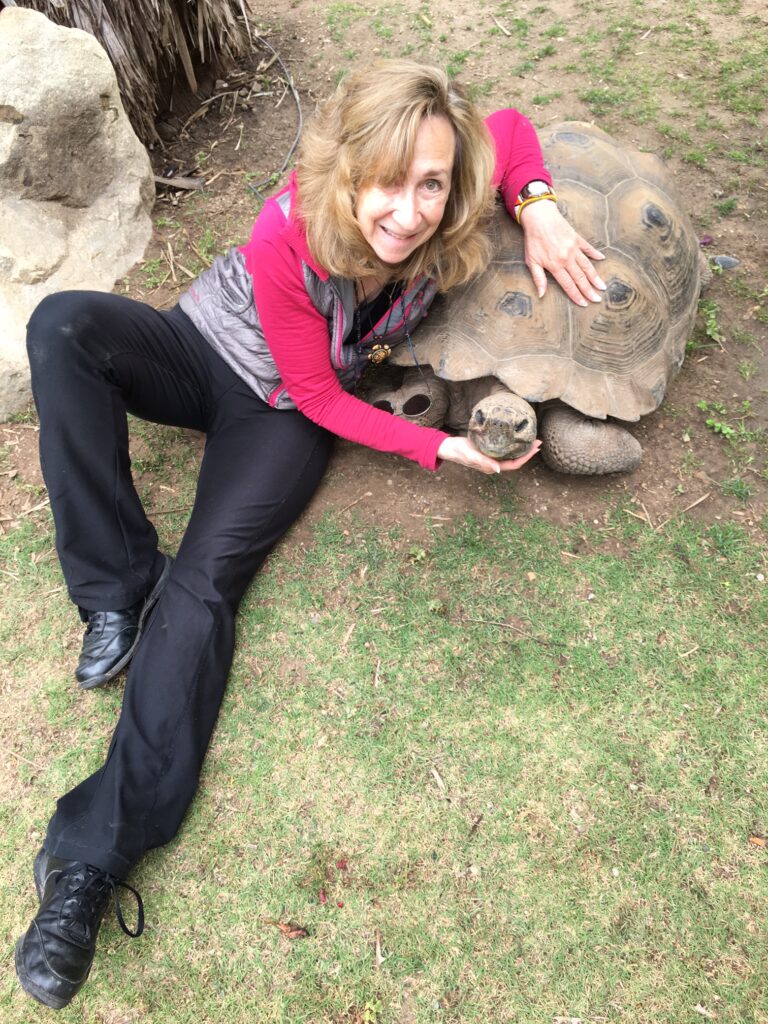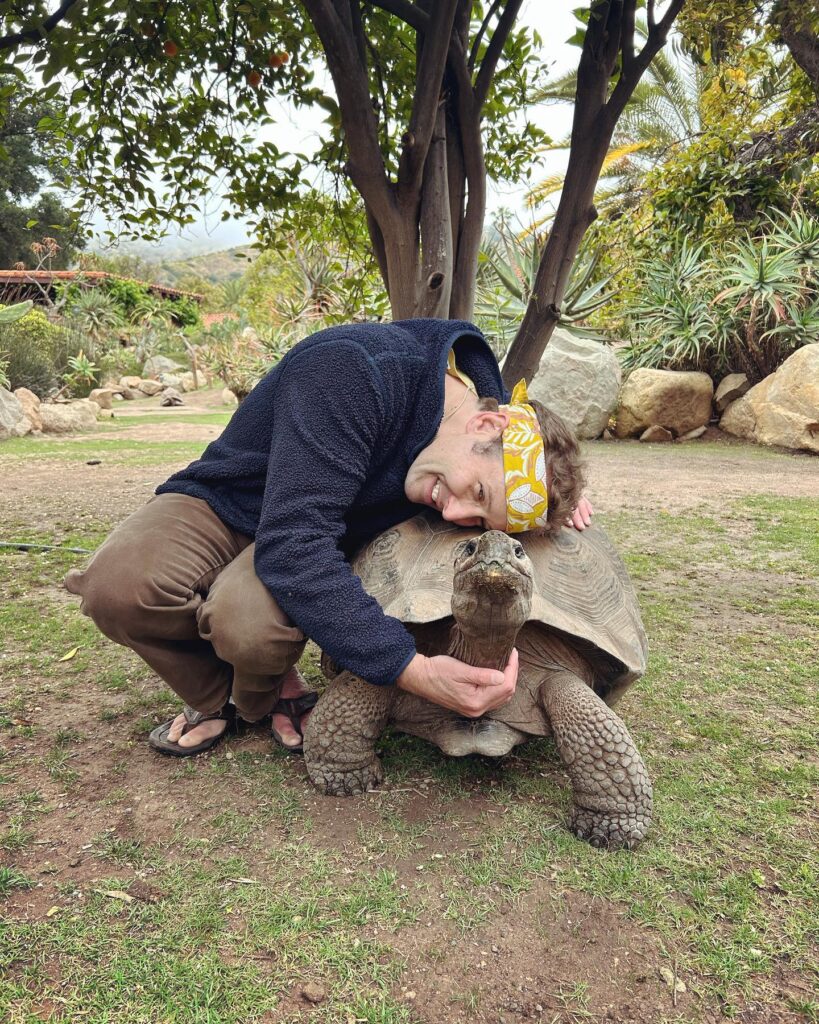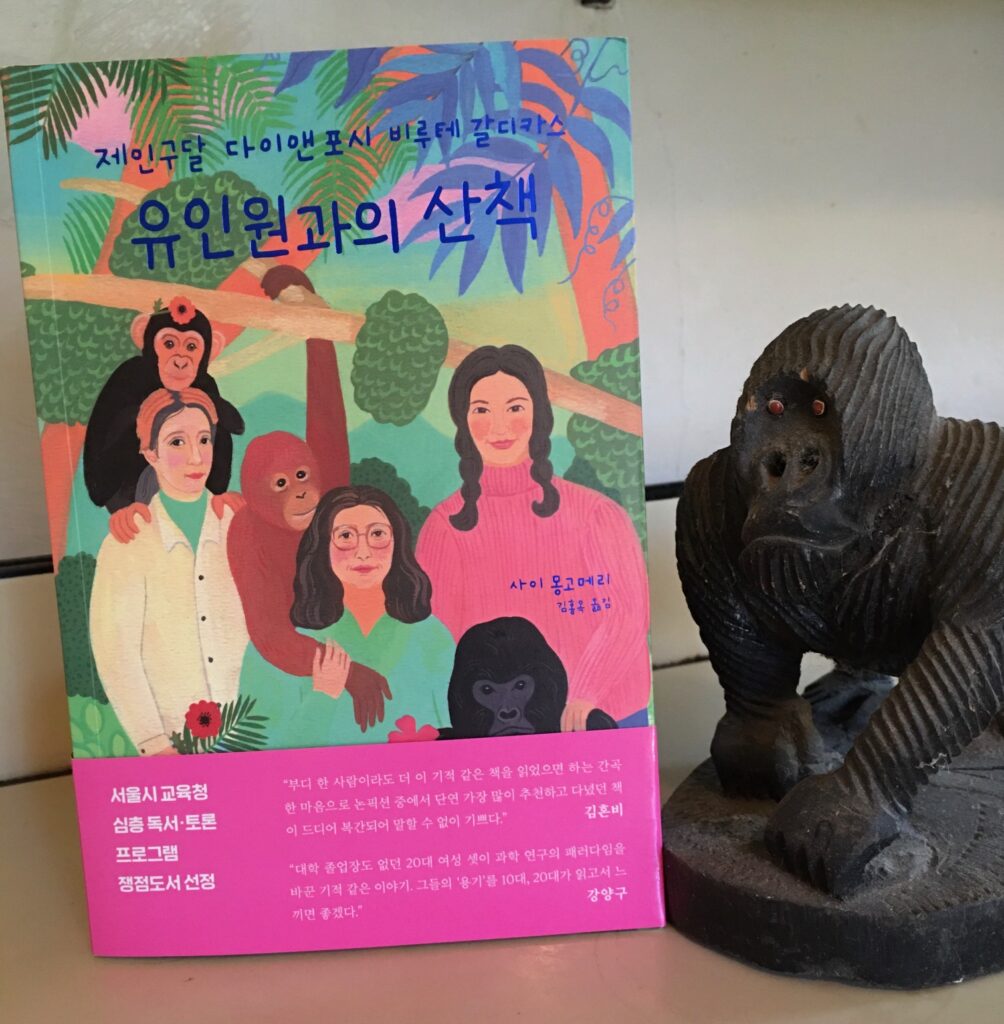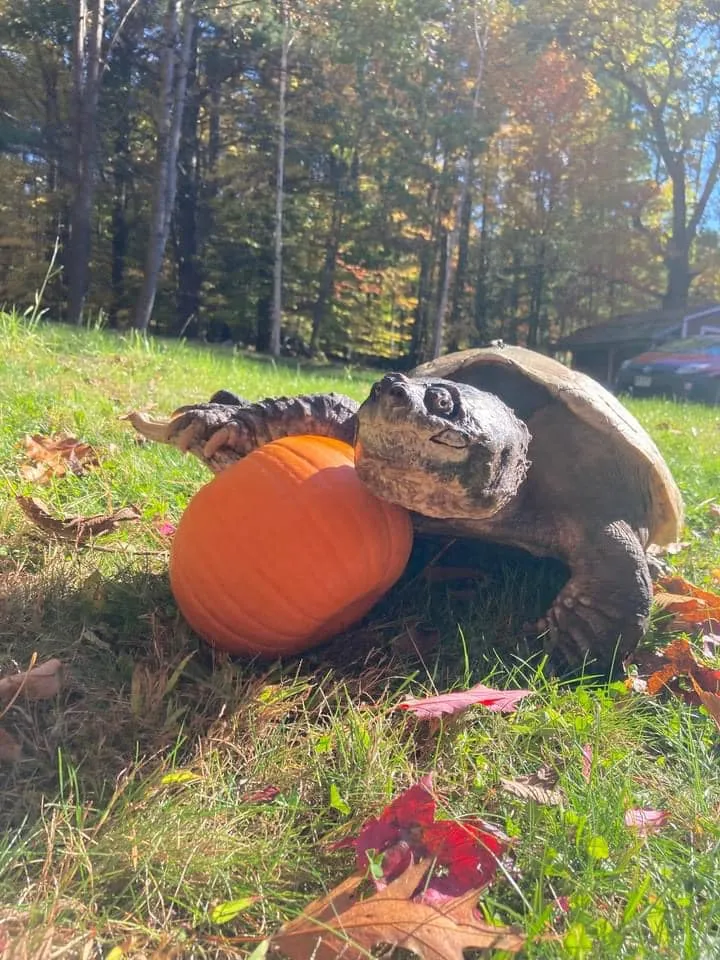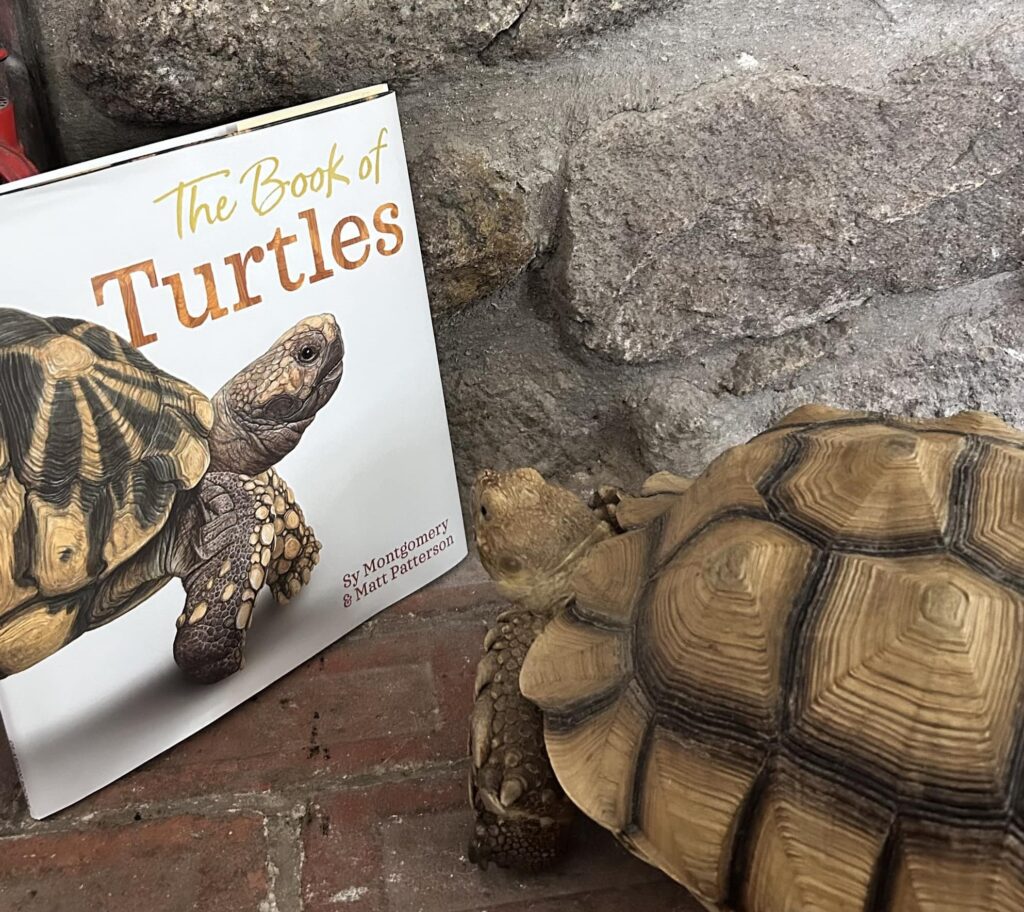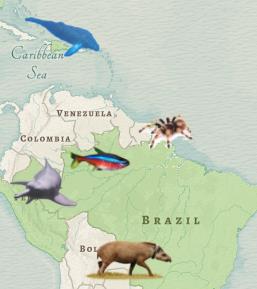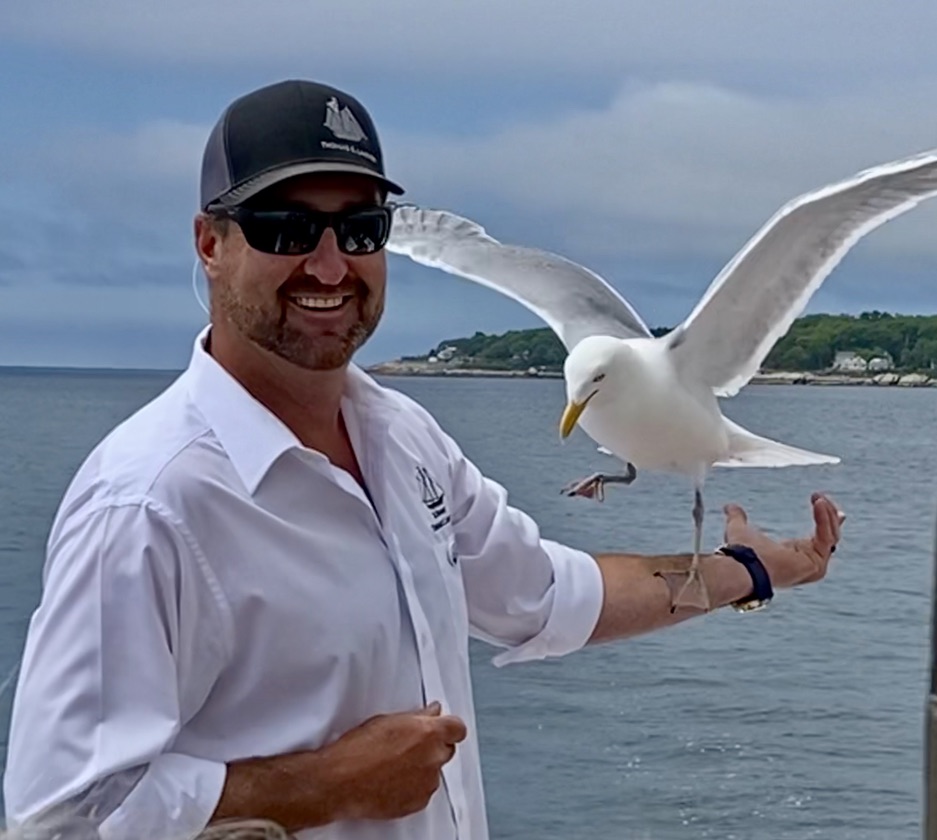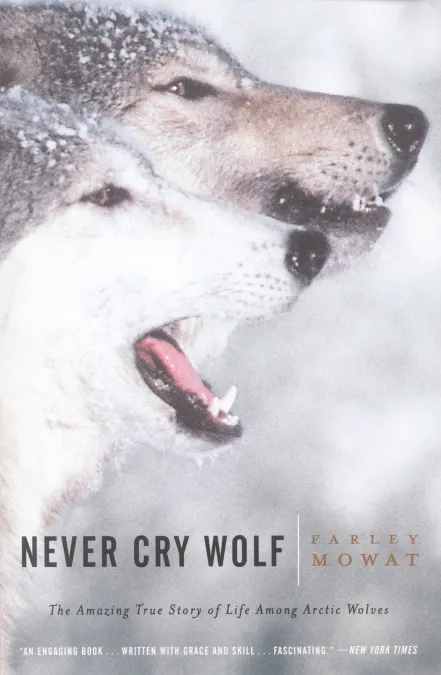 Ten books that will transform how you see nature. For Earth Day, The Washington Post asked ten authors to recommend books “that influenced their relationships with the natural world.” Sy talked about Farley Mowat’s Never Cry Wolf:
Ten books that will transform how you see nature. For Earth Day, The Washington Post asked ten authors to recommend books “that influenced their relationships with the natural world.” Sy talked about Farley Mowat’s Never Cry Wolf:
“The book moved me deeply. True, though originally published as a factual account, parts of it were later decried as fiction. (“Never let the facts get in the way of the truth,” Mowat would later tell me, when he generously welcomed me to his home while I researched my first book.) But while I’ve remained a stickler for facts in my own writing, this book showed me the importance of remaining true to matters of the heart as well — and that a writer must use not only the fruits of the intellect but also honor one’s emotion and intuition to tell a story that moves readers to action.”
See the rest of the suggested books here.
Everything’s coming up Octos on this week’s Boston Globe bestseller list. See Number 6:
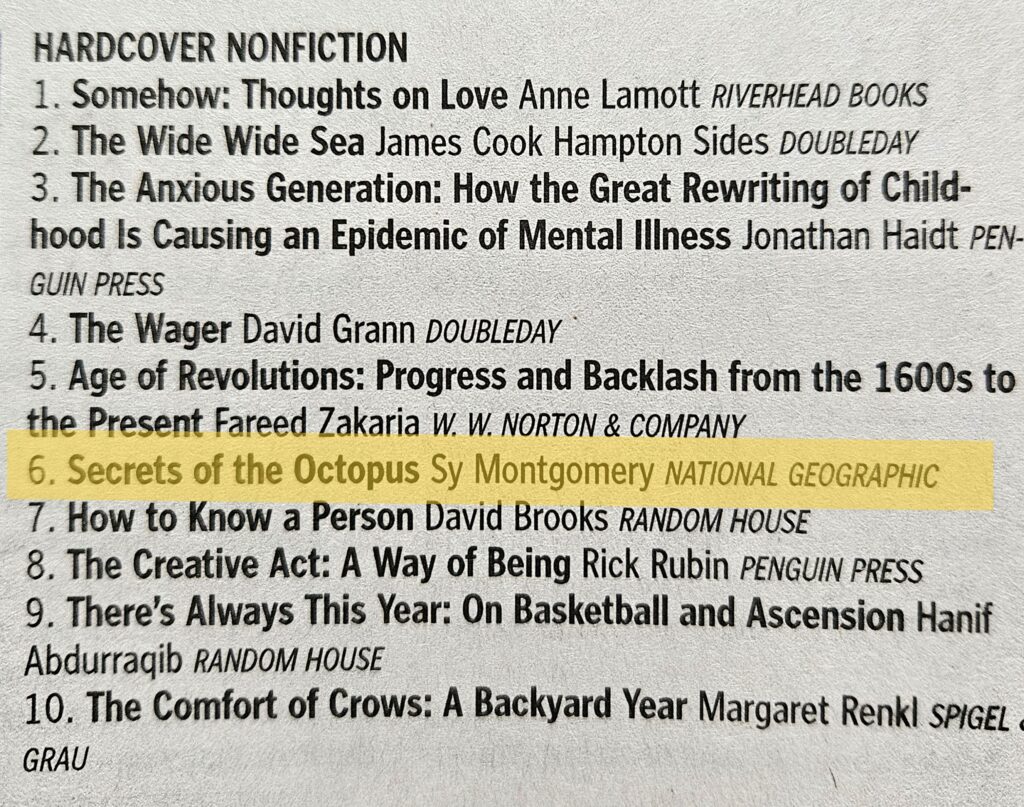
And on the Other Coast: Secrets of the Octopus is Number 9 on the Seattle Times bestseller list.
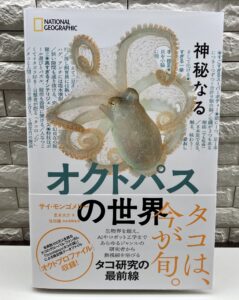 Now in Japanese: Secrets of the Octopus. (And, we hear, in German, though we haven’t seen the book yet.)
Now in Japanese: Secrets of the Octopus. (And, we hear, in German, though we haven’t seen the book yet.)
The Book of Turtles has been short-listed for a Green Earth Book Award, a national honor for children’s books promoting environmental stewardship.
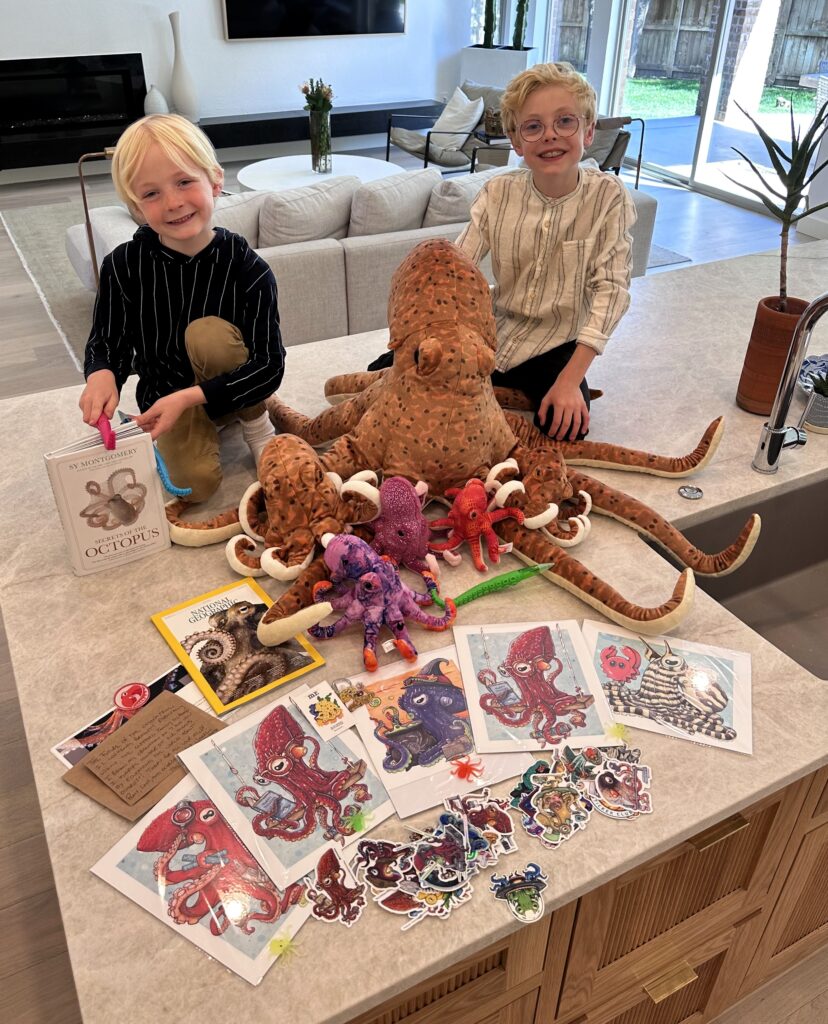
Tiktok Okto. They love octos, Sy’s new book, and OctoNation. Oklahoma octo-fan Cal Clifford’s pet octopus, Terrance, became a “Tiktoktopus” after videos of her unexpected babies went viral. Some two million folks have been following his pet octo’s 50 babies.
Seen above is Cal with his brother Lyle showing their prize loot from OctoNation. Their advice for all but the most serious (and wealthy) aquarists: get octo plushies, not pets! (In captivity, baby octopuses have an unfortunate tendency to eat each other.) And Cal’s father says, “It’s expensive, wet chaos” – but the whole family loves Terrance and her babies.
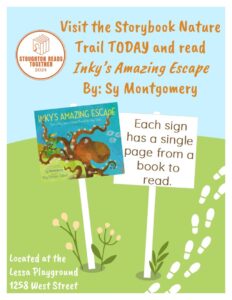 Sy is looking forward to joining Stoughton (Mass.) Reads for April 22 and 23rd. It’s all-out-octos for Earth Day.
Sy is looking forward to joining Stoughton (Mass.) Reads for April 22 and 23rd. It’s all-out-octos for Earth Day.
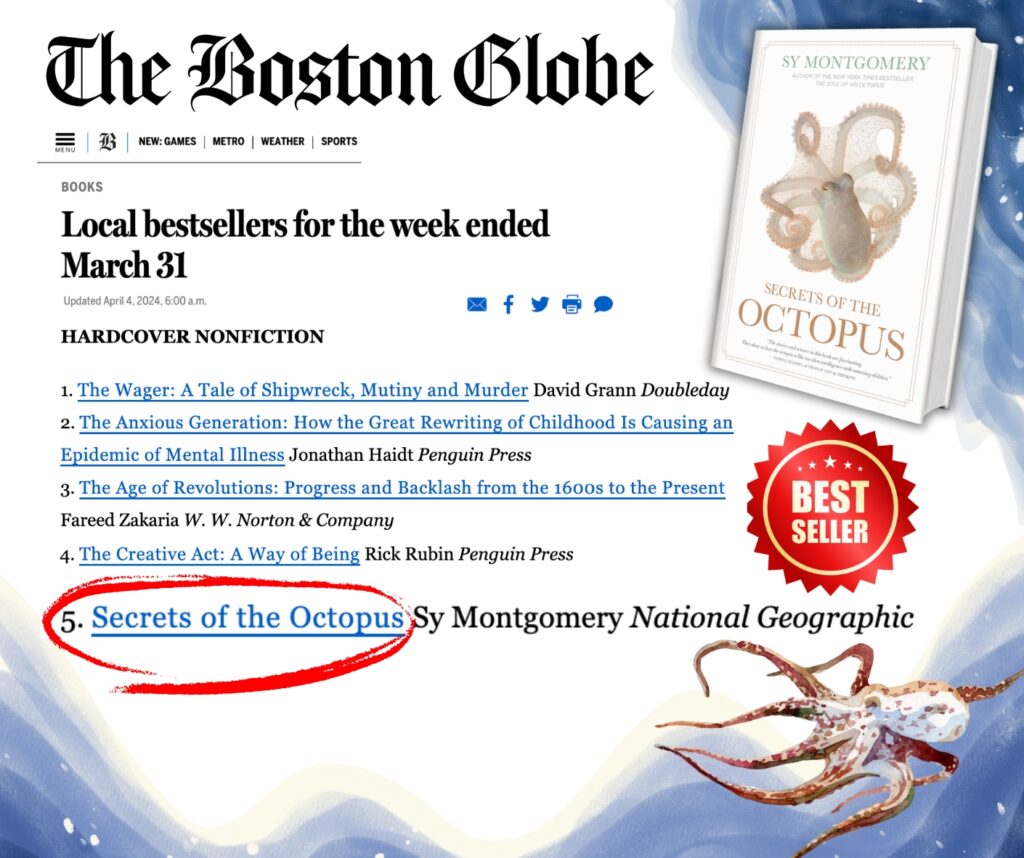
Meanwhile on that other coast: Secrets of the Octopus has climbed to #6 on the Seattle Times bestseller list.
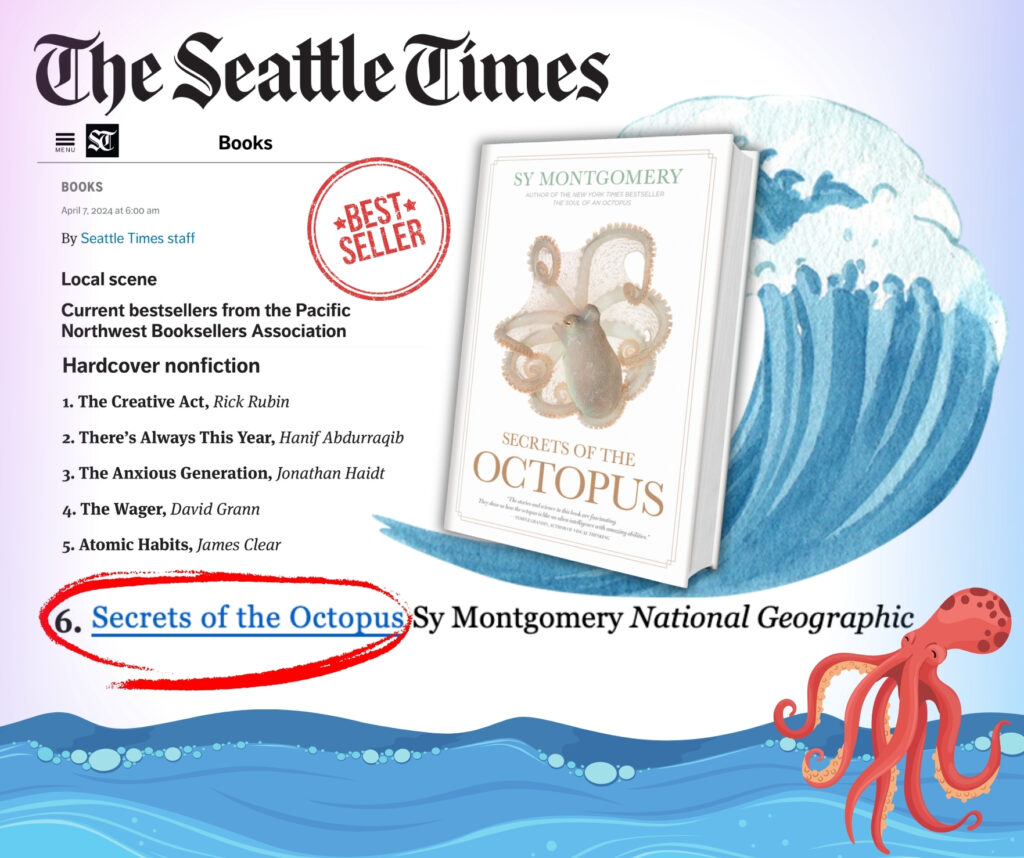
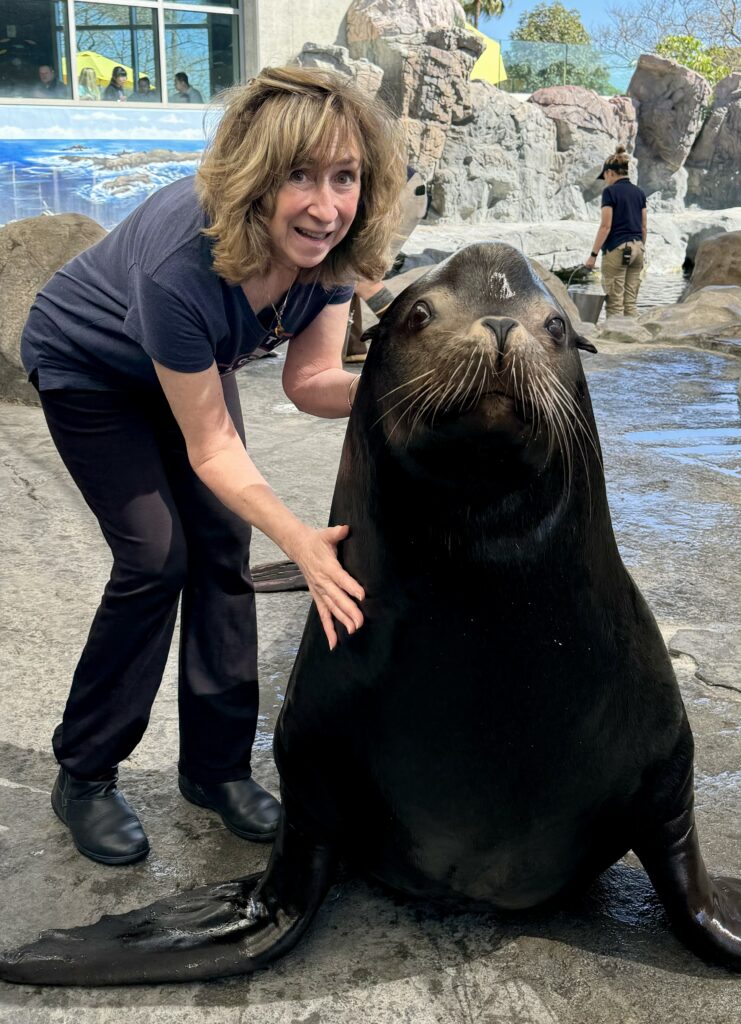
Sy is honored to share a Riverby Award with Matt Patterson, and sign copies at Books of Wonder in New York City. The Riverby Award is given by the John Burroughs Association, which was founded in 1921 to commemorate the life and works of the naturalist John Burroughs.
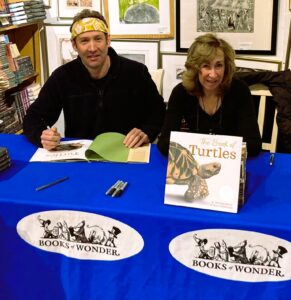 |
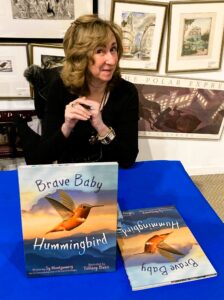 |
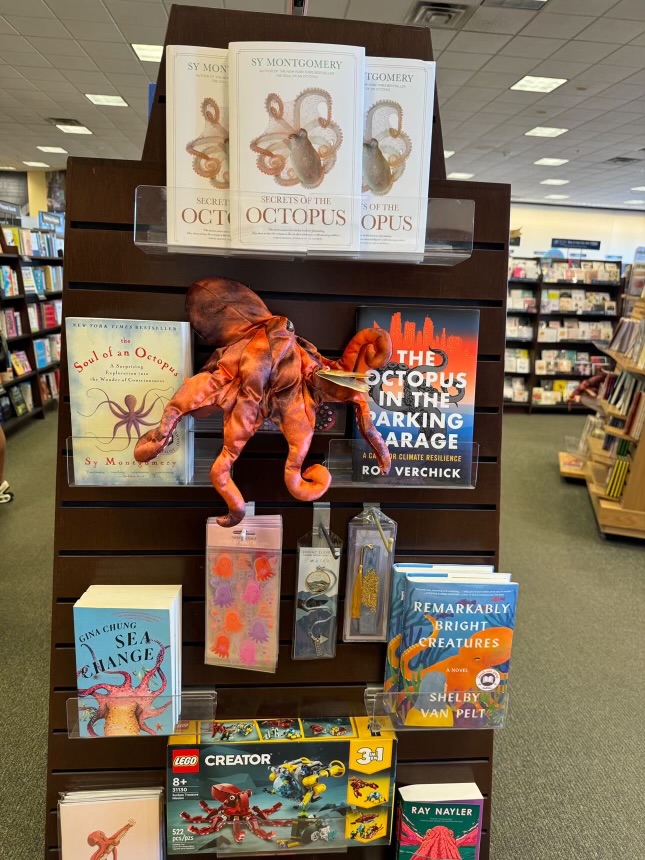
Secrets of the Octopus is a bestseller. It’s number seven on the Pacific Northwest Booksellers Association bestseller list.
Bookbub has chosen Of Time and Turtles as one of the great, uplifting nature books of spring. See their list here.

If you click on the top “marine life” books on Amazon, Sy’s books occupy 7 of the top 10 slots. How amazing is that?
Sy and Matt talk about their love of turtles, octopus and freshwater fish at the creativeprocess.info:
Sy: “I think that animals certainly don’t have all these widgets demanding their attention like we do. Their spirits are just not as atomized as ours are. We have so many little things flickering at the edge of our consciousness. When we pay attention to anything, we’re not paying that deep attention, but animals are. And they have senses that we do not. I mean, they’re aware of chemical cues that we completely miss. They can hear sounds we don’t hear. They see colors and kinds of light we can’t perceive, etc. But we all share a common ancestor. We share 90 percent of our genetic material with all placental mammals. So we really are all family…. It makes a human feel less lonely. So many humans I know, they’re just suffering terribly from loneliness even though they’re in a sea of other humans. Well, I never feel lonely. And I can be alone, so-called, in a landscape with no other human anywhere, and I feel nested and safe and at home. And I know you do, too, because there are all these other lives around us.”
Matt: “When you listen to your instincts, it’s the voices of your ancestors guiding you. The narration of your ancestors and not just your human ancestors going all the way back to when everybody was just one cell. And being connected to your origin in that way is very different from the Western world in which you’re off like an arrow, and you’ve left all that behind.”
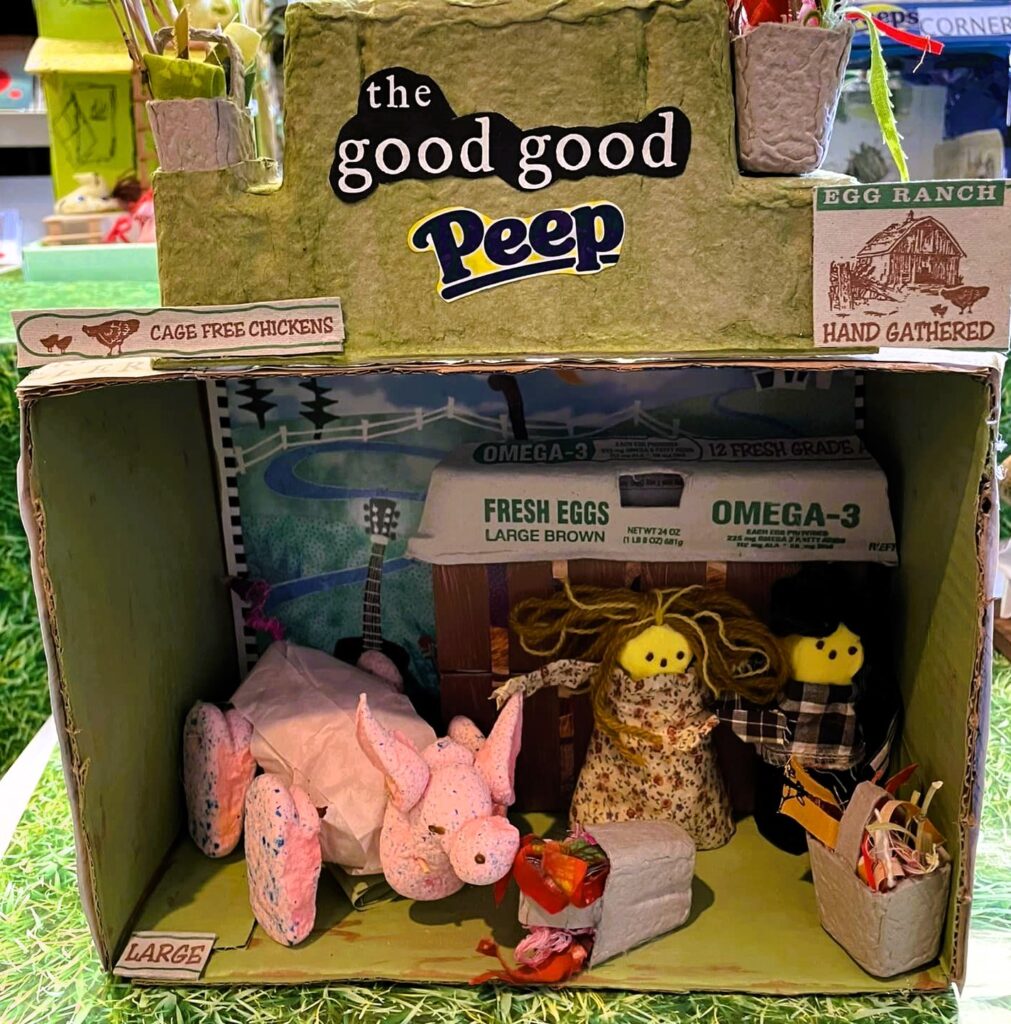
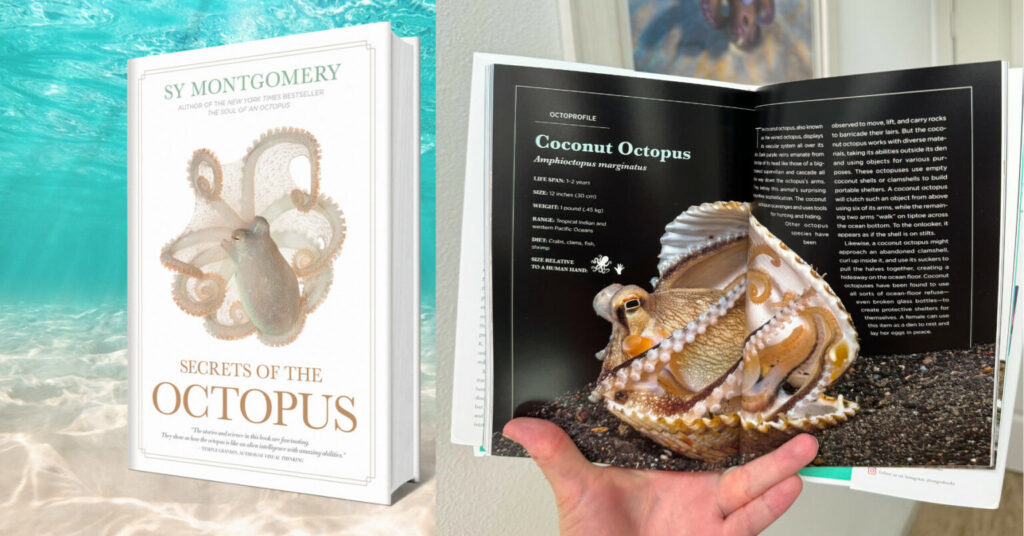 Win a new book. OctoNation is thrilled to offer OctoFans a chance to win a copy of the newest National Geographic book, Secrets of the Octopus by Sy Montgomery and the founder of OctoNation, Warren K. Carlyle IV.
Win a new book. OctoNation is thrilled to offer OctoFans a chance to win a copy of the newest National Geographic book, Secrets of the Octopus by Sy Montgomery and the founder of OctoNation, Warren K. Carlyle IV. 
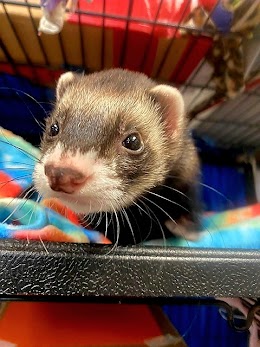 Vote for Sy & Matt. The Book of Turtles has been nominated for an award from professional humane educators — and you, the hardshell faithful, can
Vote for Sy & Matt. The Book of Turtles has been nominated for an award from professional humane educators — and you, the hardshell faithful, can 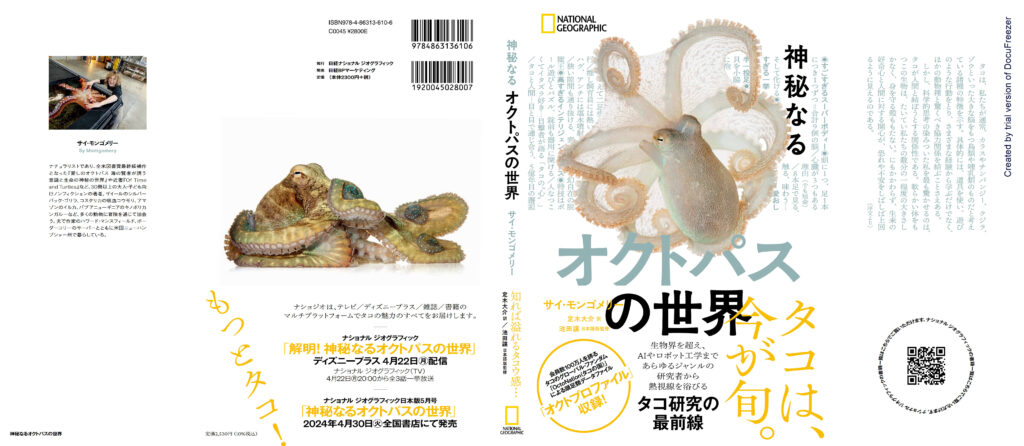
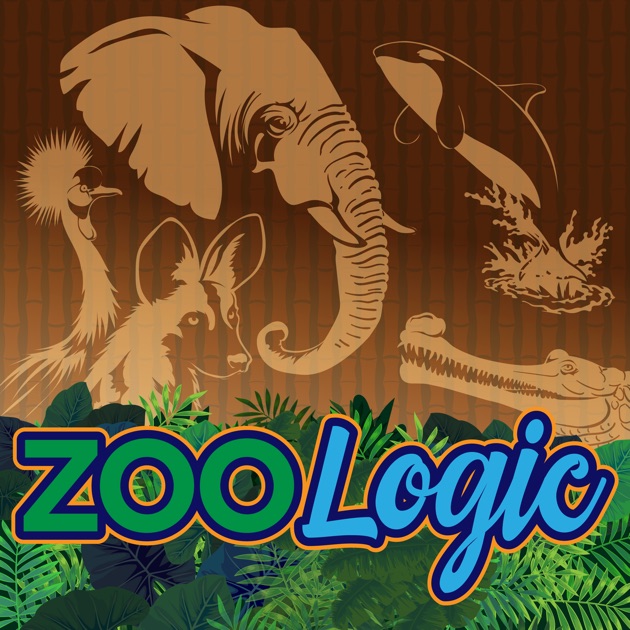 Telling Secrets.
Telling Secrets. 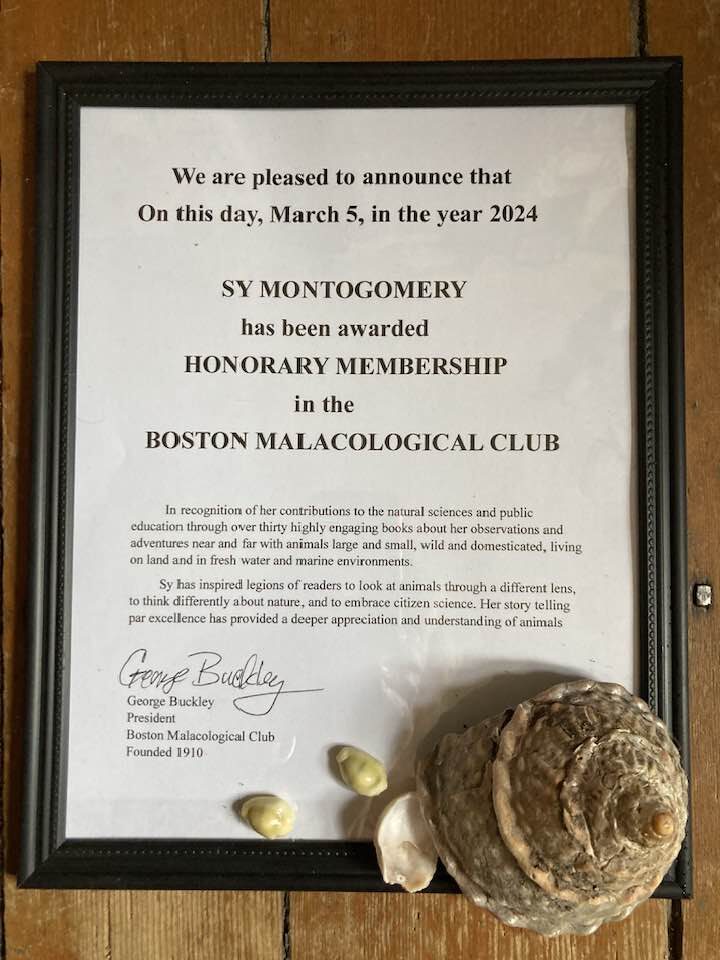
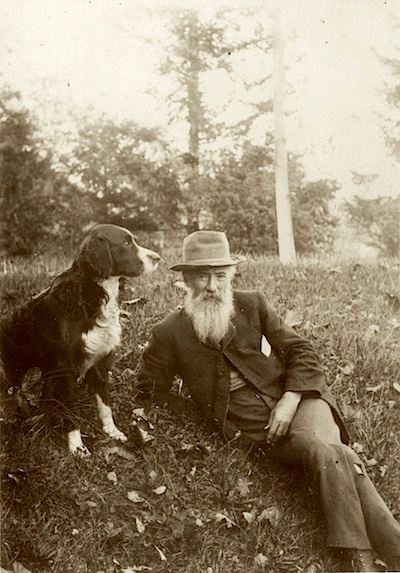
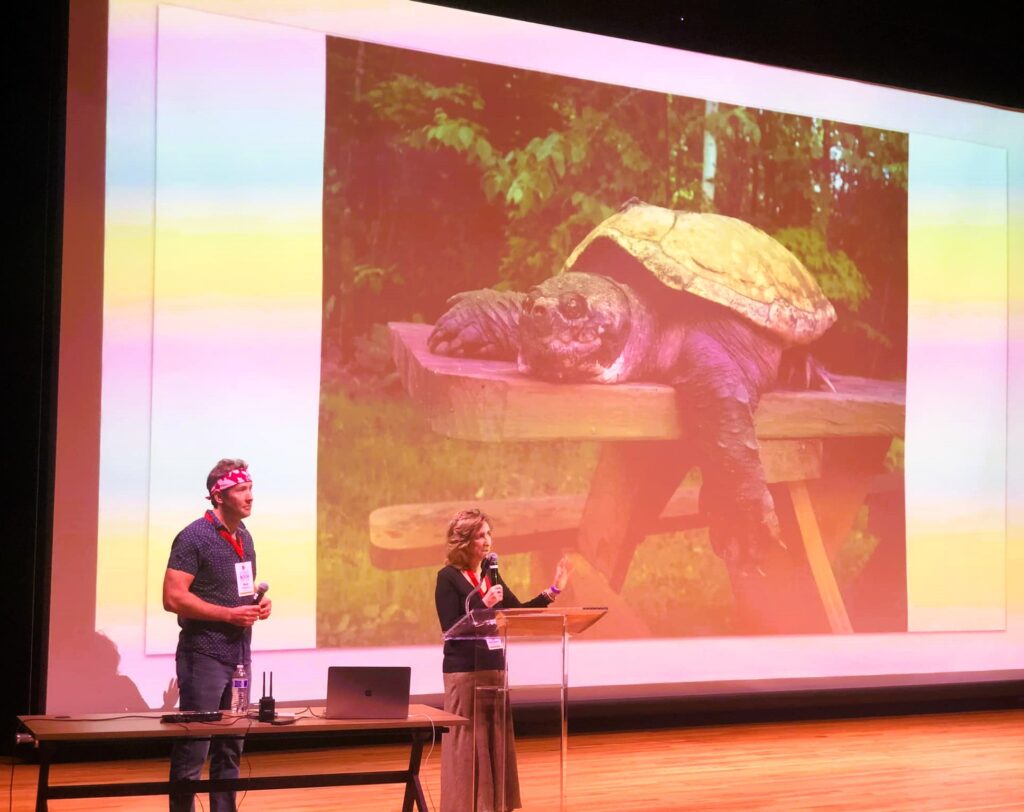 Turtles all the way down … south. The Hardshell Faithful turn out at the Savannah Book Festival to hear Sy and Matt talk about the their turtle books.
Turtles all the way down … south. The Hardshell Faithful turn out at the Savannah Book Festival to hear Sy and Matt talk about the their turtle books.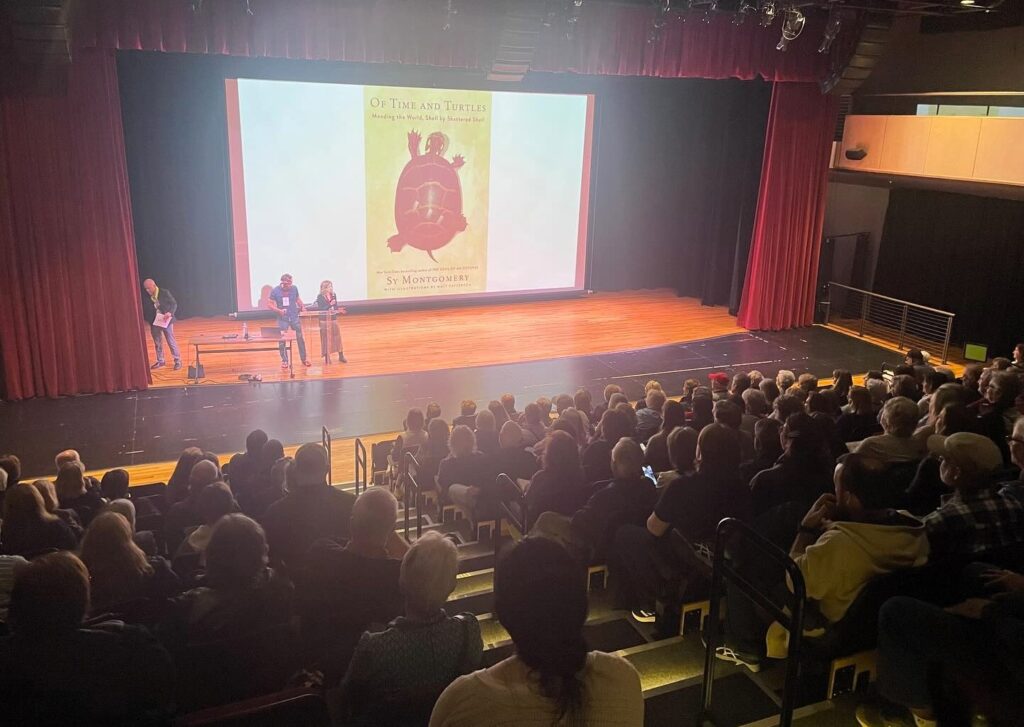
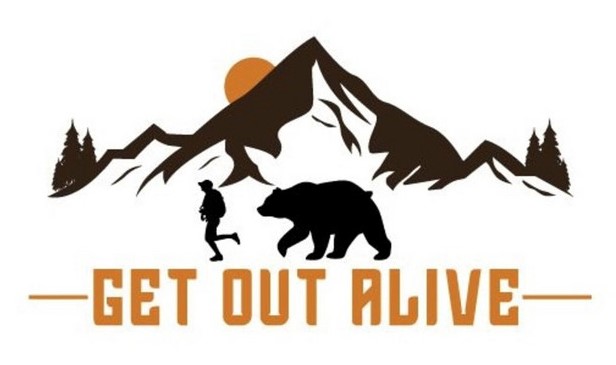 Get Out Alive — always a worthy goal, and a great name for the podcast on which Sy shared her turtle (and shark and tiger and octopus) adventures.
Get Out Alive — always a worthy goal, and a great name for the podcast on which Sy shared her turtle (and shark and tiger and octopus) adventures. 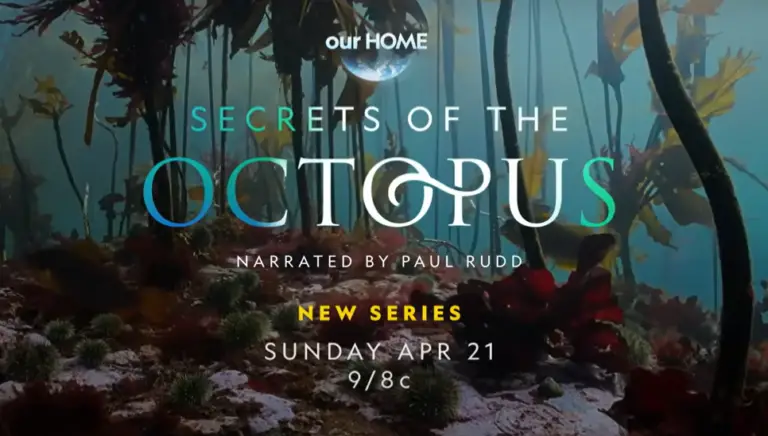
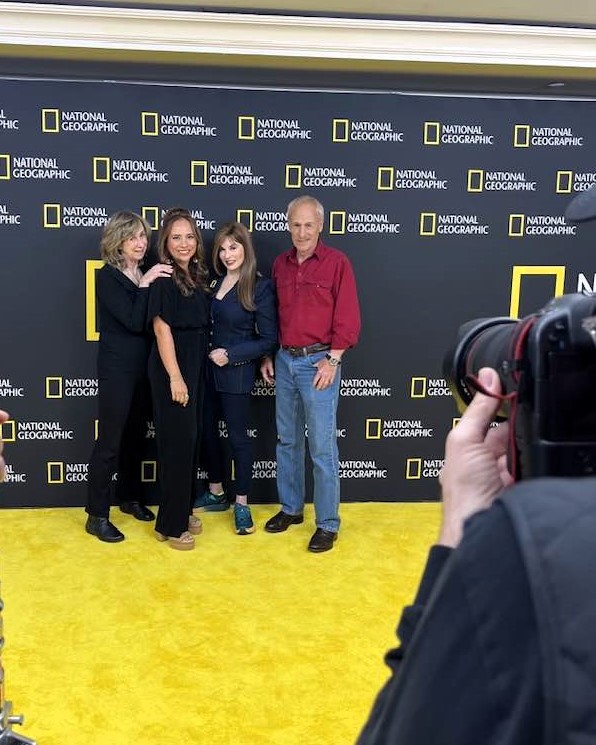

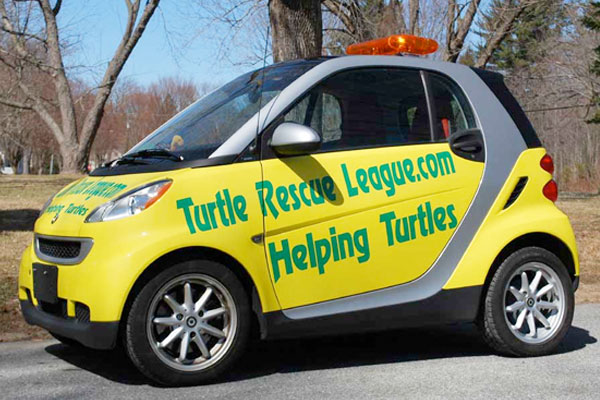 “Sy creates vivid portraits of many of the residents of TRL who acquire colorful names, usually based on the circumstances in which they’re found – Pizza Man, Fire Chief, etc. As with the octopuses, real relationships develop between their care givers and these strange creatures, who predate even the dinosaurs. I have to admit that I haven’t retained much knowledge about the various sub-species of turtles who pass through, but I do recall the individuals and cheer their recoveries or mourn their losses.
“Sy creates vivid portraits of many of the residents of TRL who acquire colorful names, usually based on the circumstances in which they’re found – Pizza Man, Fire Chief, etc. As with the octopuses, real relationships develop between their care givers and these strange creatures, who predate even the dinosaurs. I have to admit that I haven’t retained much knowledge about the various sub-species of turtles who pass through, but I do recall the individuals and cheer their recoveries or mourn their losses.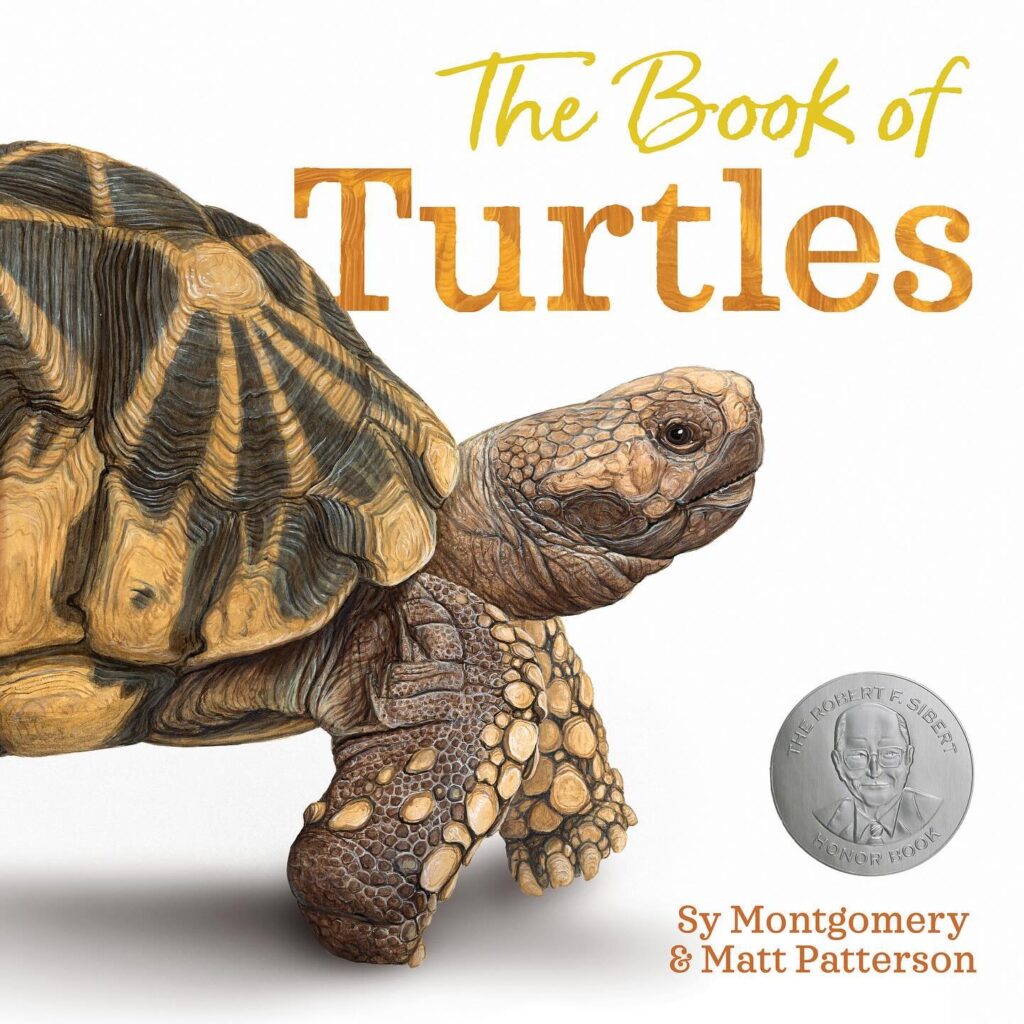
 Wild Reads. One of Sy’s favorite books growing up was Never Cry Wolf by Farley Mowat. It is her choice for Wild Reads: Experts Share their Favorite Animal-Inspired Books. The reading list is at the PBS Masterpiece Theatre
Wild Reads. One of Sy’s favorite books growing up was Never Cry Wolf by Farley Mowat. It is her choice for Wild Reads: Experts Share their Favorite Animal-Inspired Books. The reading list is at the PBS Masterpiece Theatre 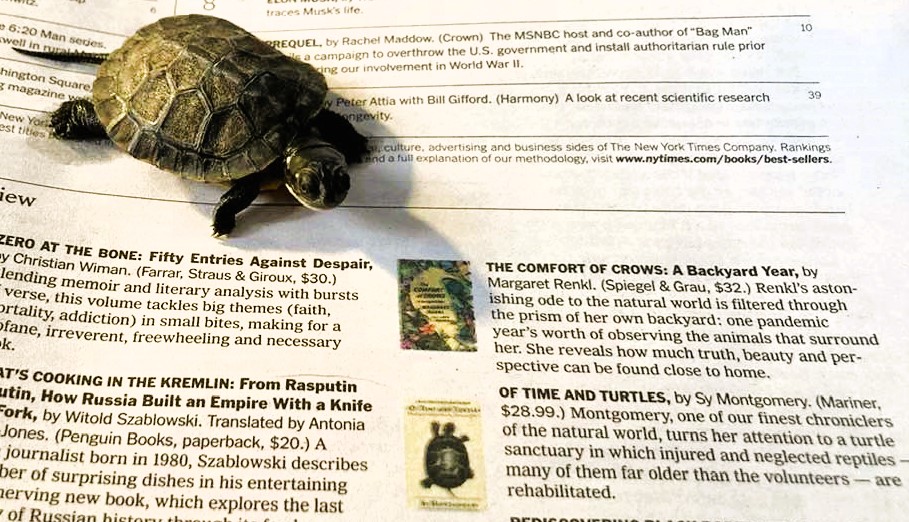
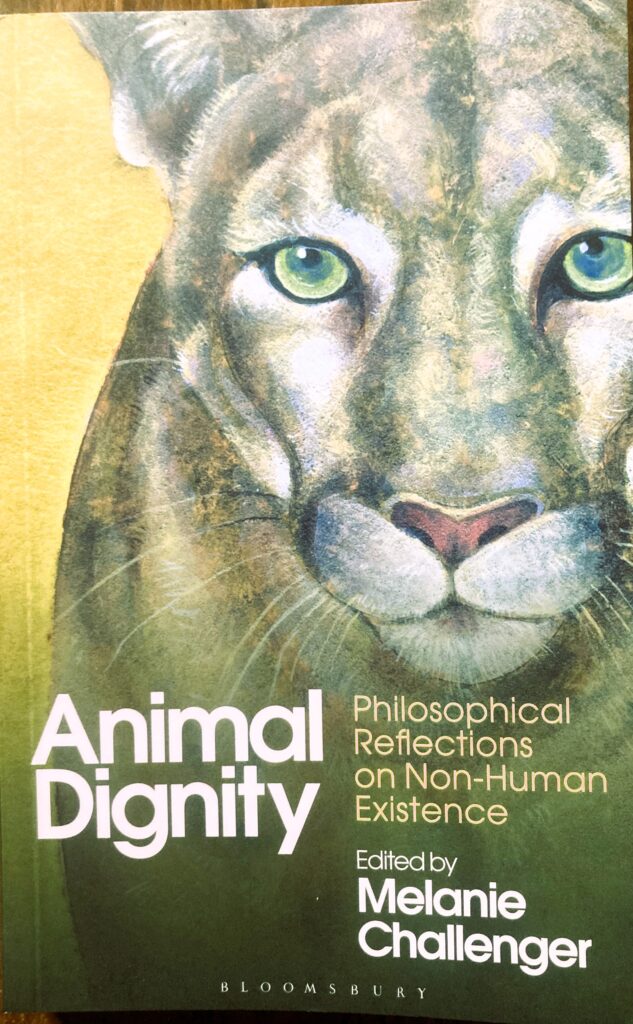 Sy has brought her octo-magic to a new anthology, Animal Dignity. Twenty writers, historians, ethnologists, artists, and philosophers explore how “we understand the dignity and value of non-human animals.” The book has a sterling line-up: Alexandra Horowitz (Dignity in Dogs); Jonathan Safer Foer (33,00 Birds); Martha Nussbaum (on the “capabilities” of animals); and a foreword by Jane Goodall.
Sy has brought her octo-magic to a new anthology, Animal Dignity. Twenty writers, historians, ethnologists, artists, and philosophers explore how “we understand the dignity and value of non-human animals.” The book has a sterling line-up: Alexandra Horowitz (Dignity in Dogs); Jonathan Safer Foer (33,00 Birds); Martha Nussbaum (on the “capabilities” of animals); and a foreword by Jane Goodall.  The teens who produce the podcast This Teenage Life, interview Sy (one of their heroes) and Matt, to learn how “animals can keep them grounded and inspired … in the fast-paced, tech-driven world we live in.”
The teens who produce the podcast This Teenage Life, interview Sy (one of their heroes) and Matt, to learn how “animals can keep them grounded and inspired … in the fast-paced, tech-driven world we live in.” 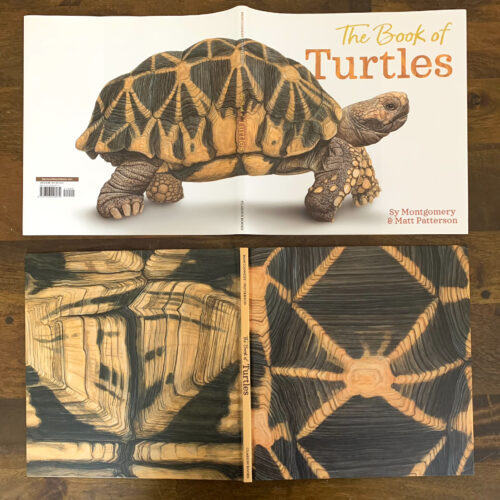
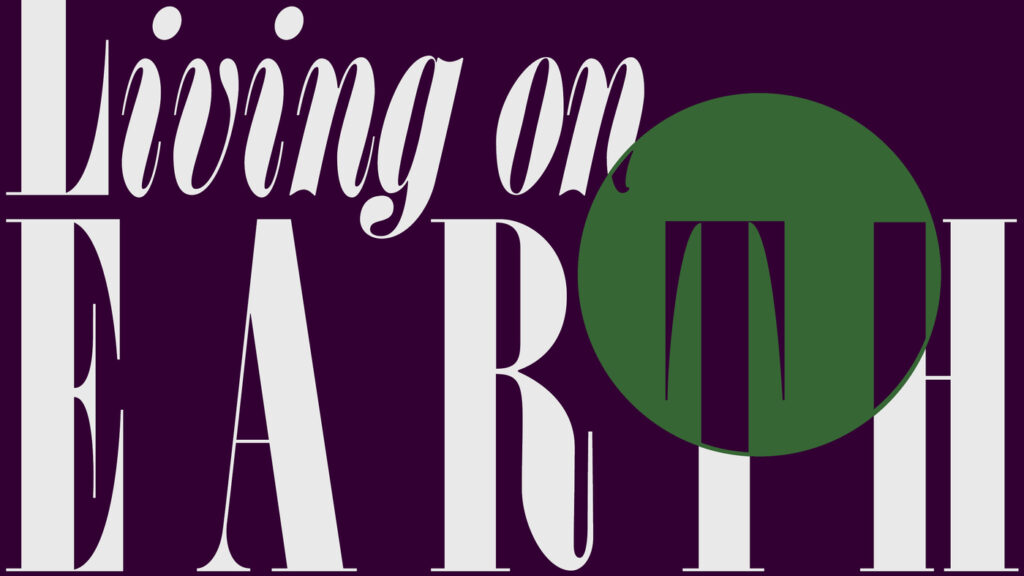
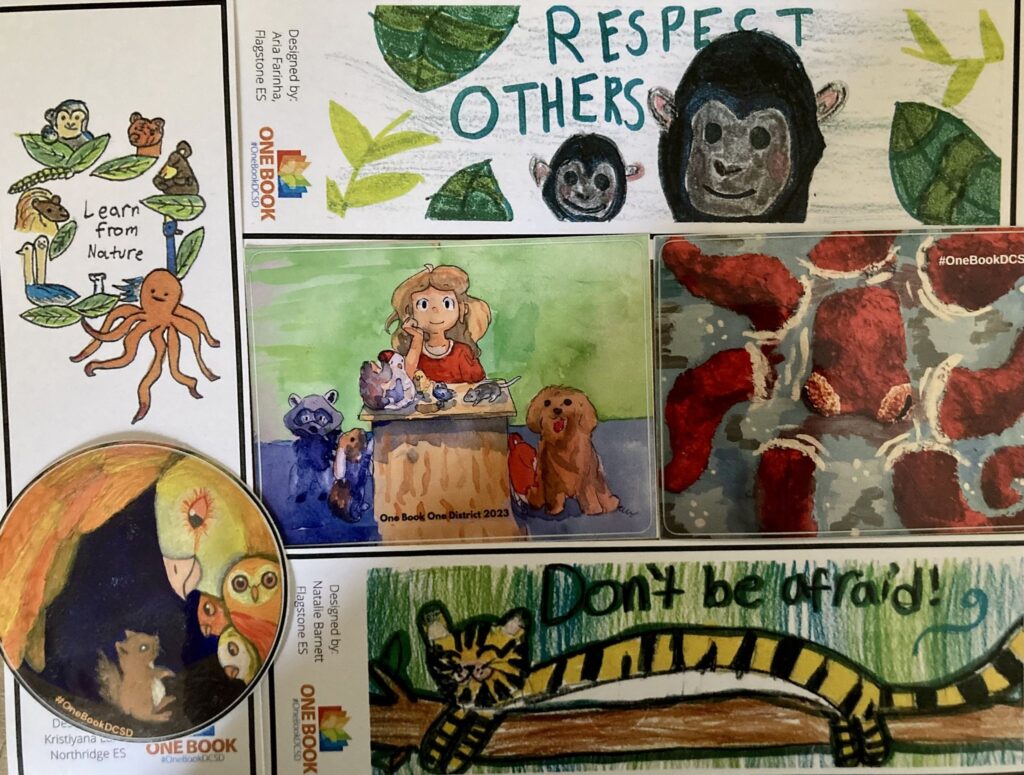
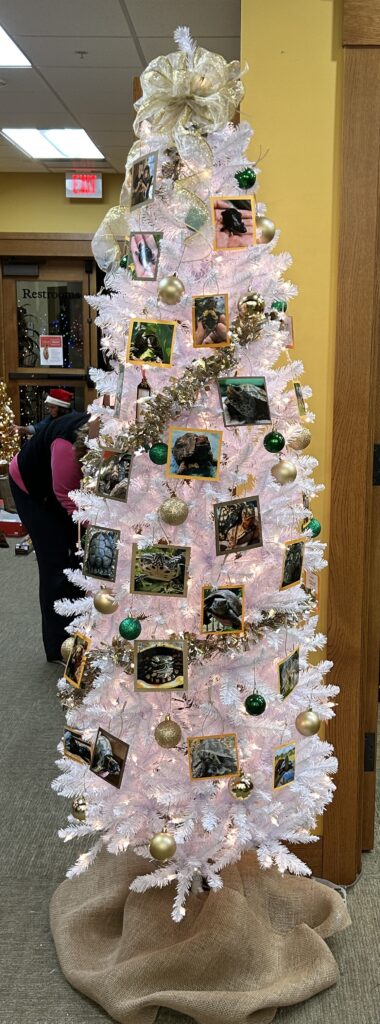

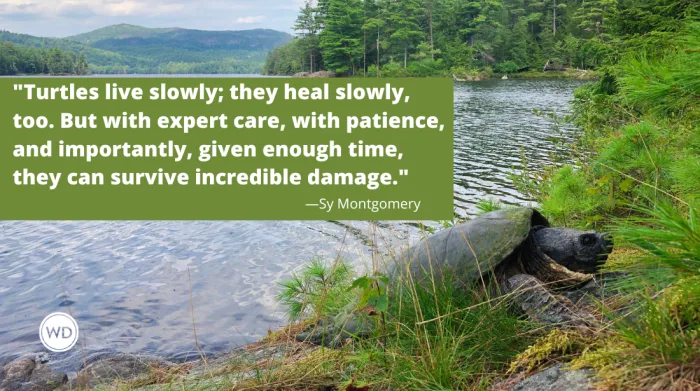
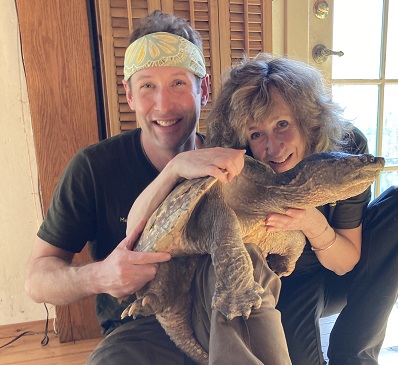
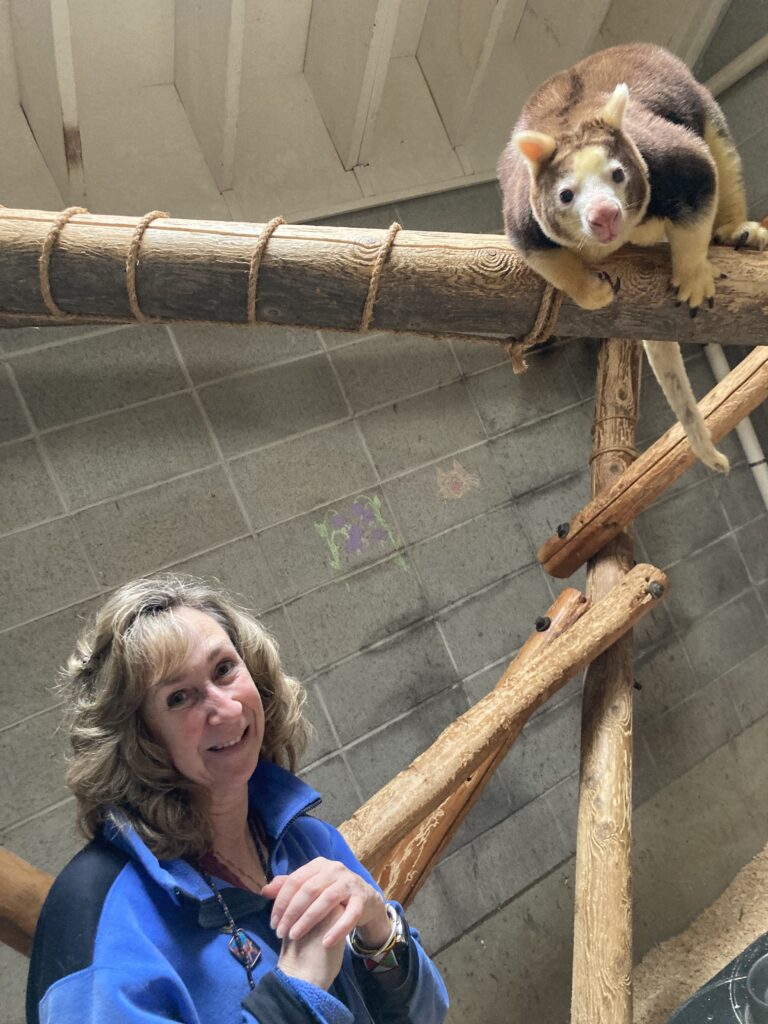
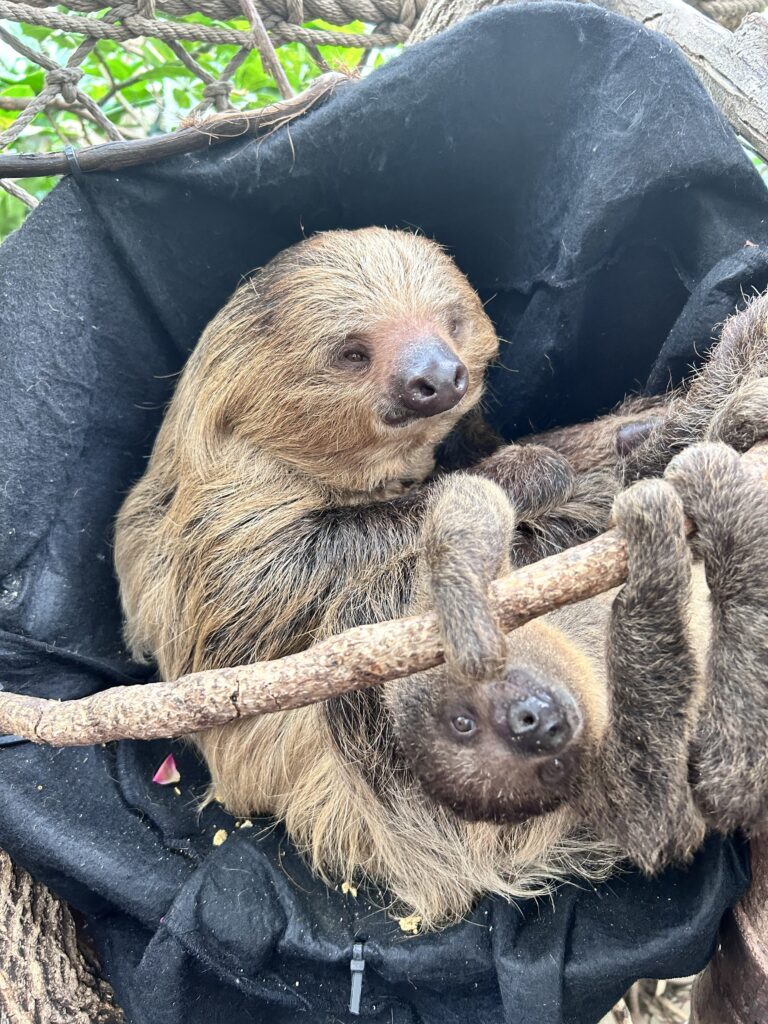
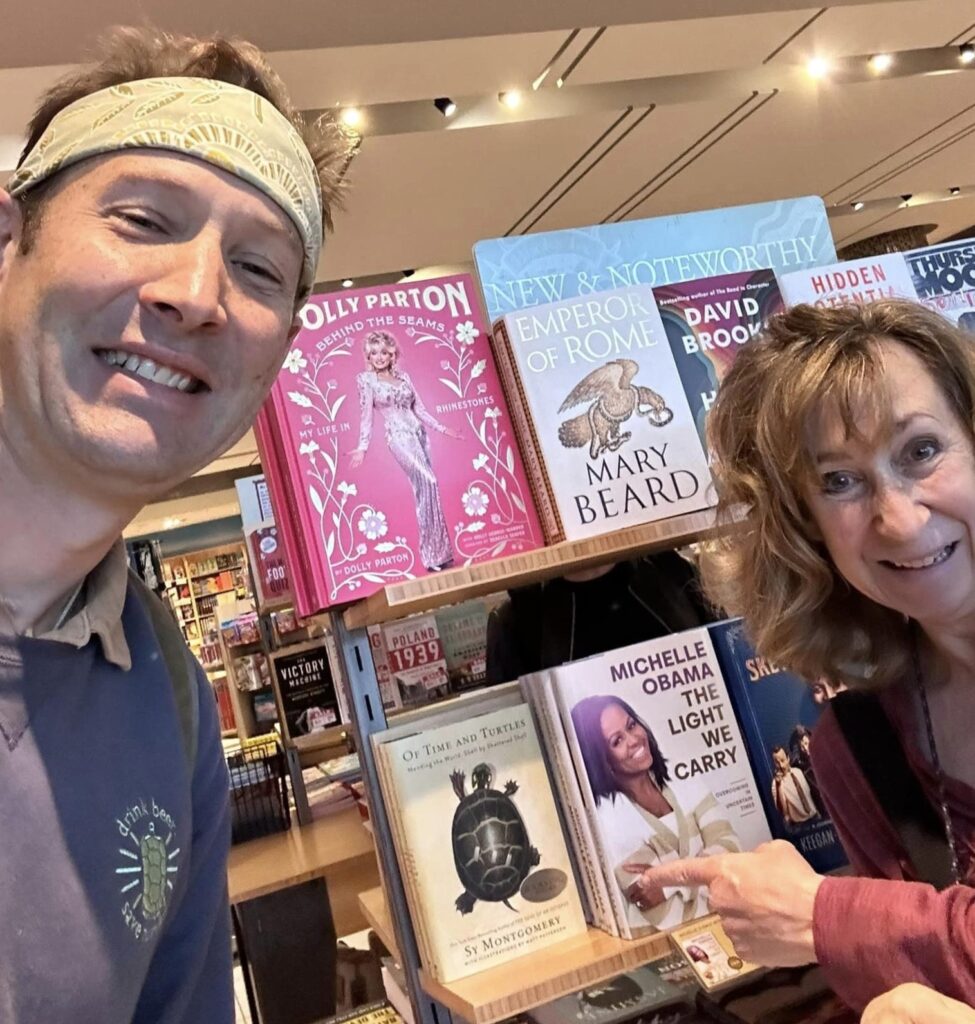 Scenes from the Road. Sy and Matt are on the West Coast preaching the Hardshell Gospel. To the right is a certain turtle book at the Los Angeles airport (LAX as it is better known). And below, the children of the Nesbit School, near San Francisco, welcome their turtle-loving elders.
Scenes from the Road. Sy and Matt are on the West Coast preaching the Hardshell Gospel. To the right is a certain turtle book at the Los Angeles airport (LAX as it is better known). And below, the children of the Nesbit School, near San Francisco, welcome their turtle-loving elders.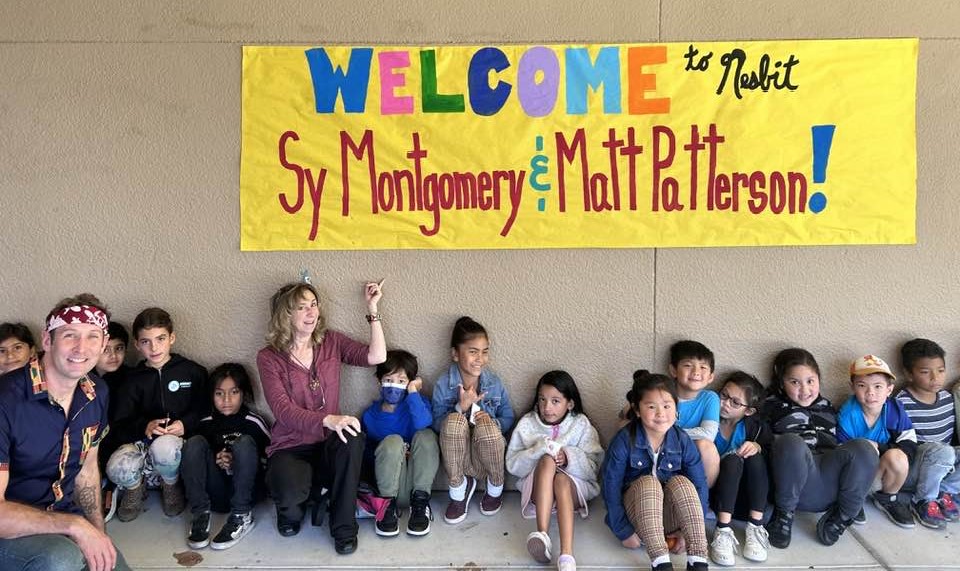
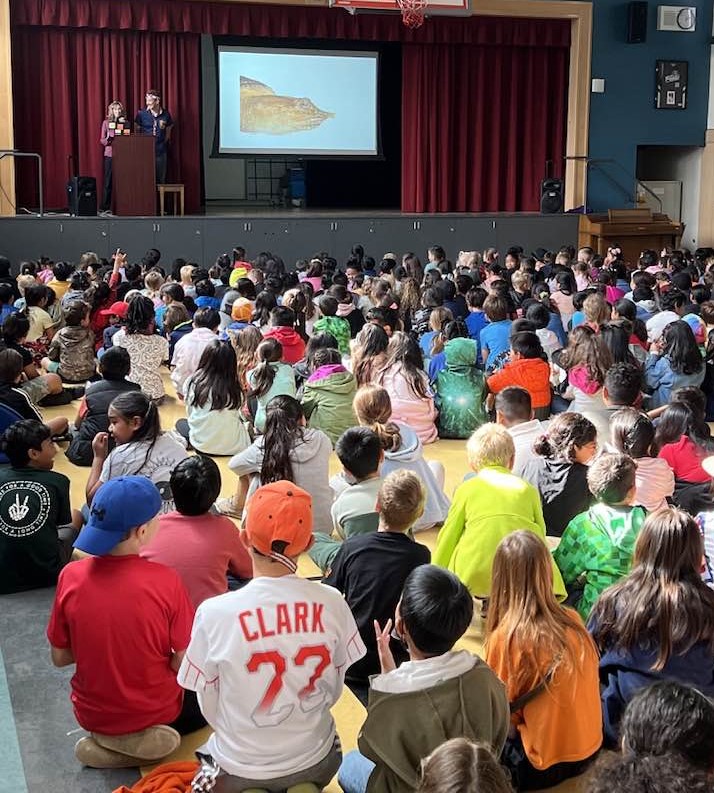

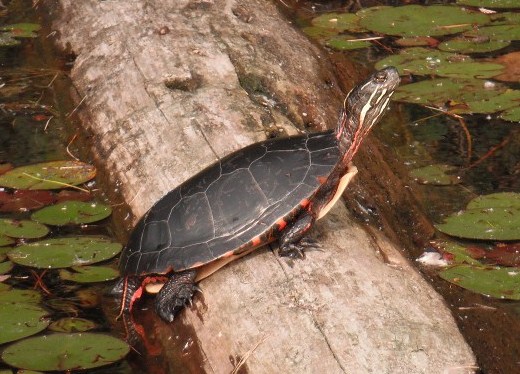
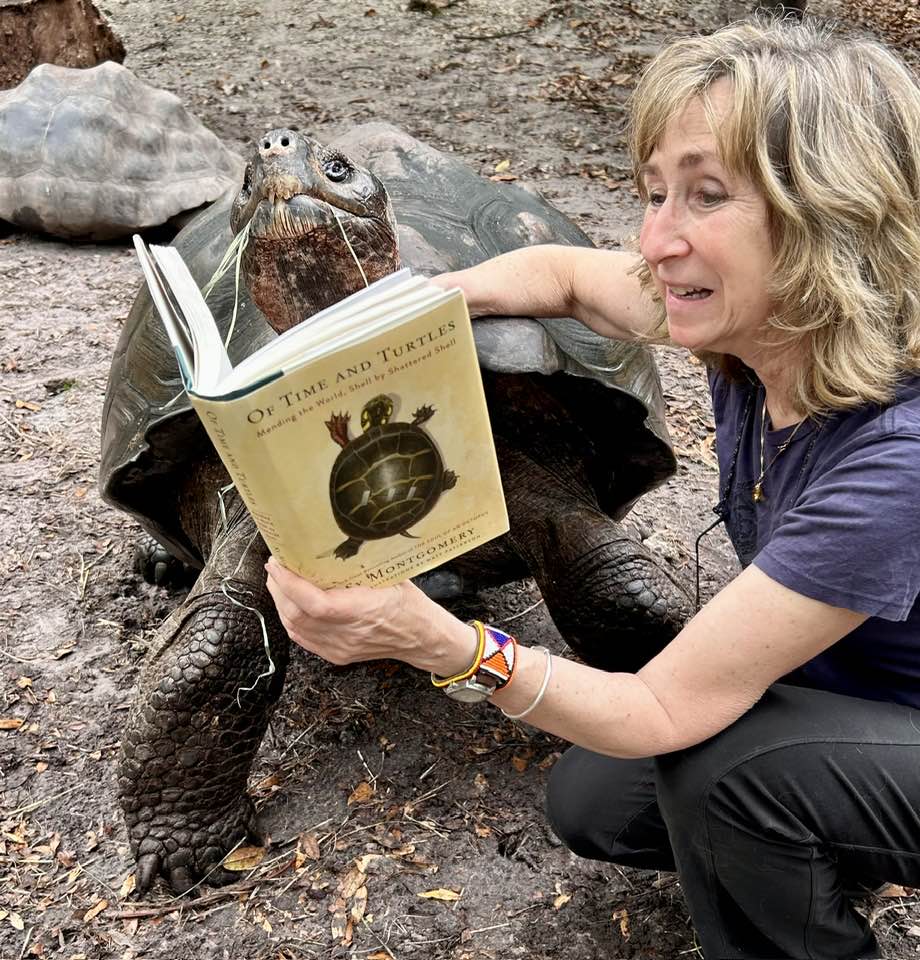
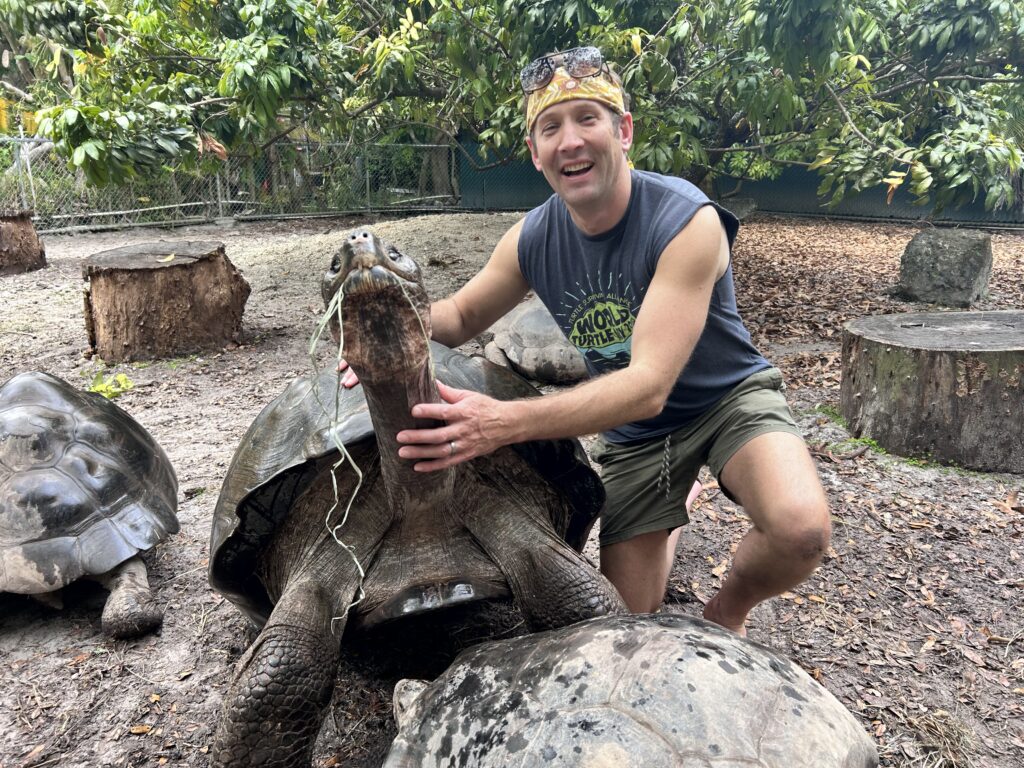
 Sy shares 5 key insights from her new book, Of Time and Turtles, with
Sy shares 5 key insights from her new book, Of Time and Turtles, with 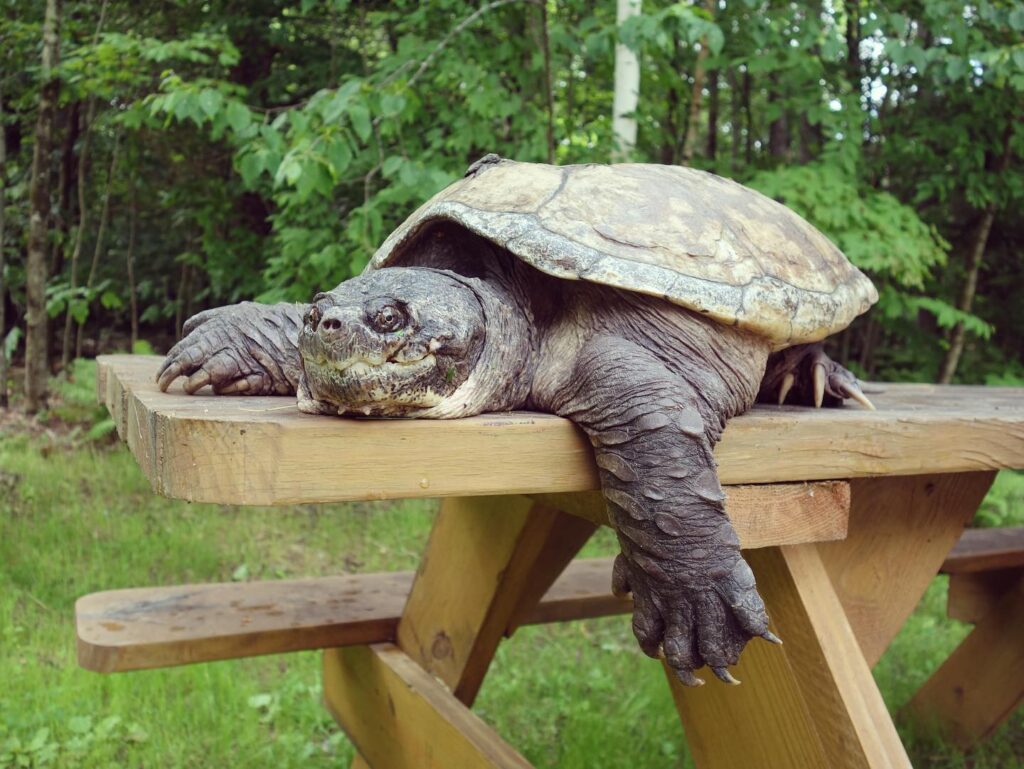

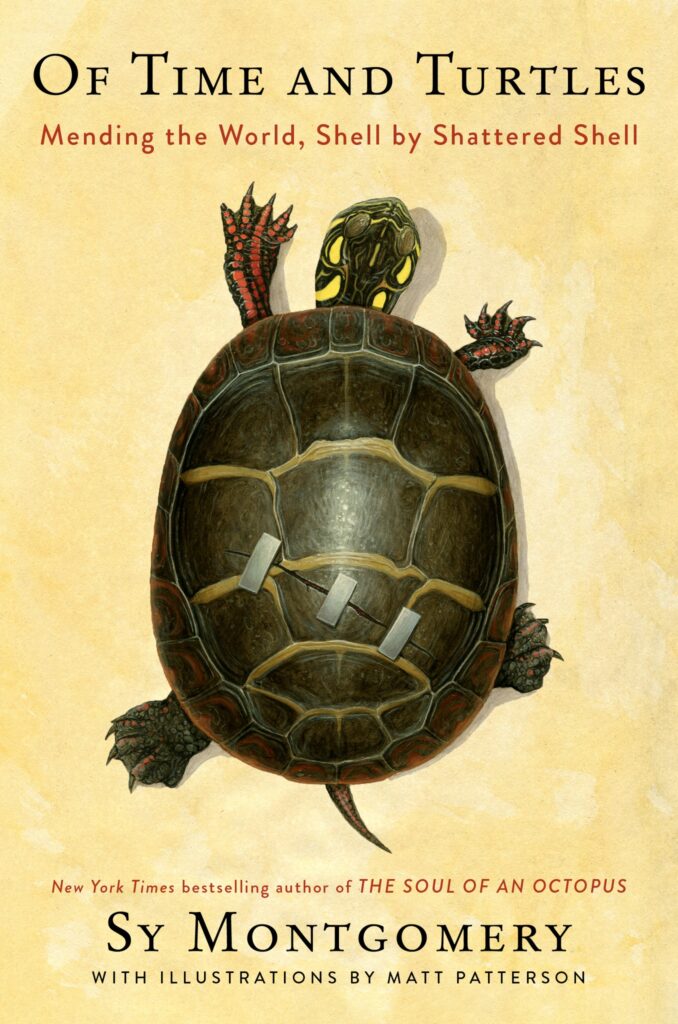
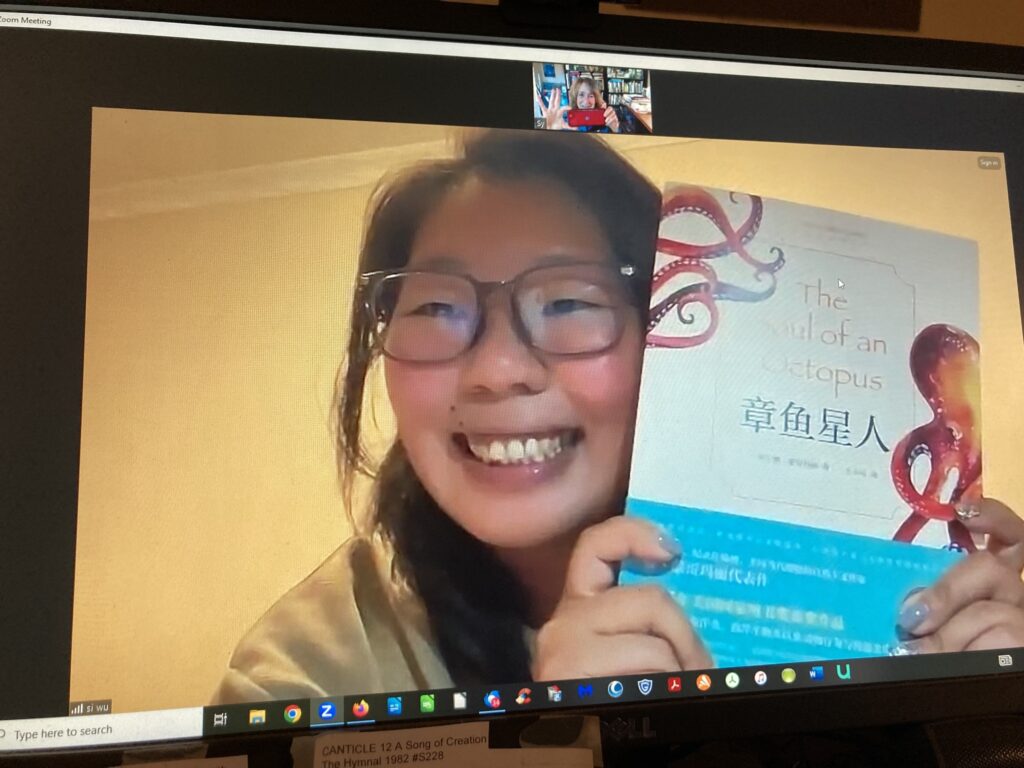

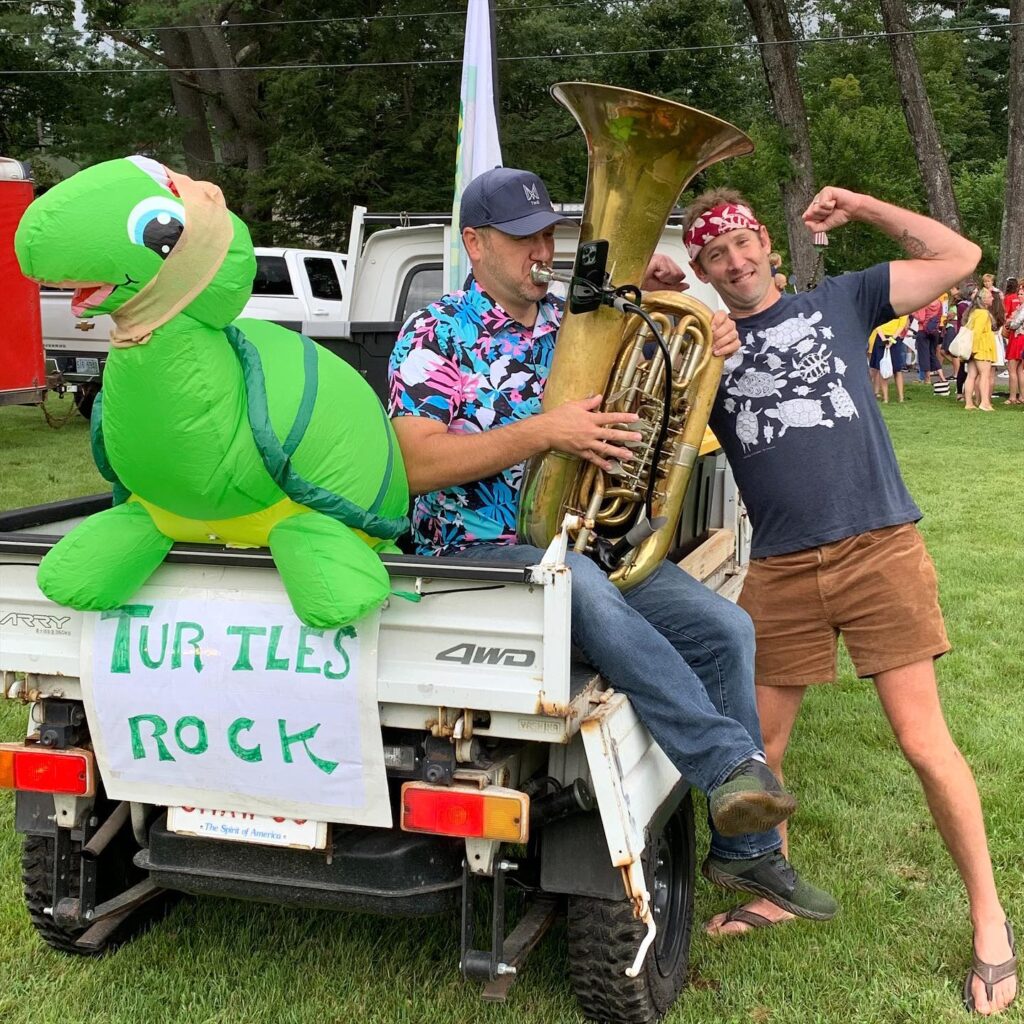
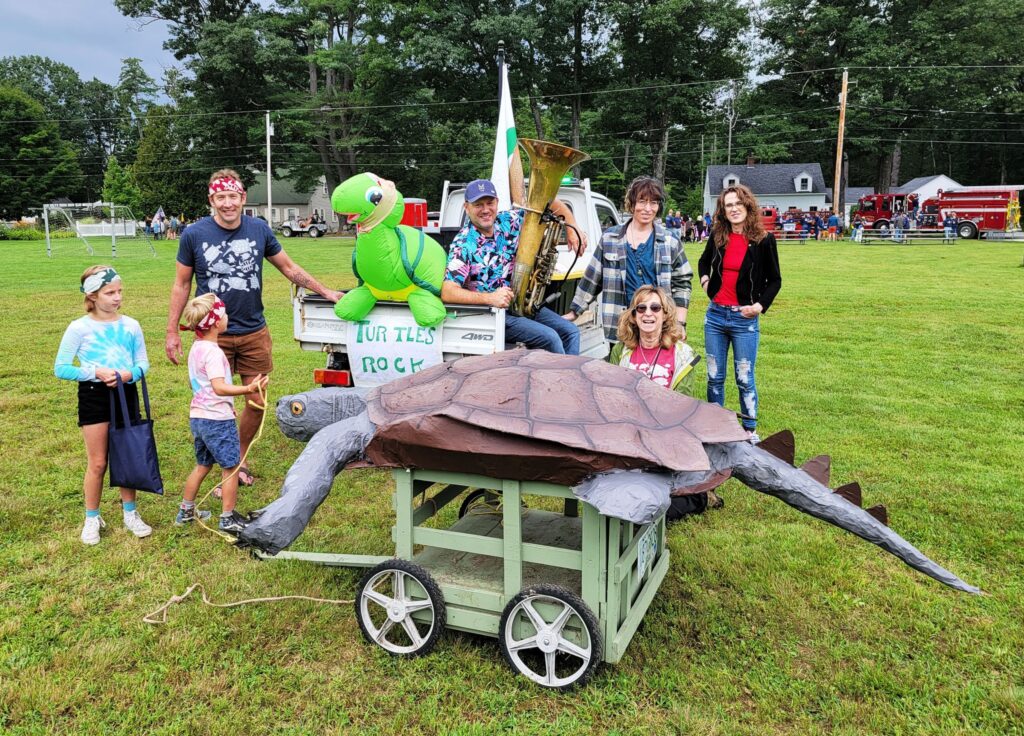
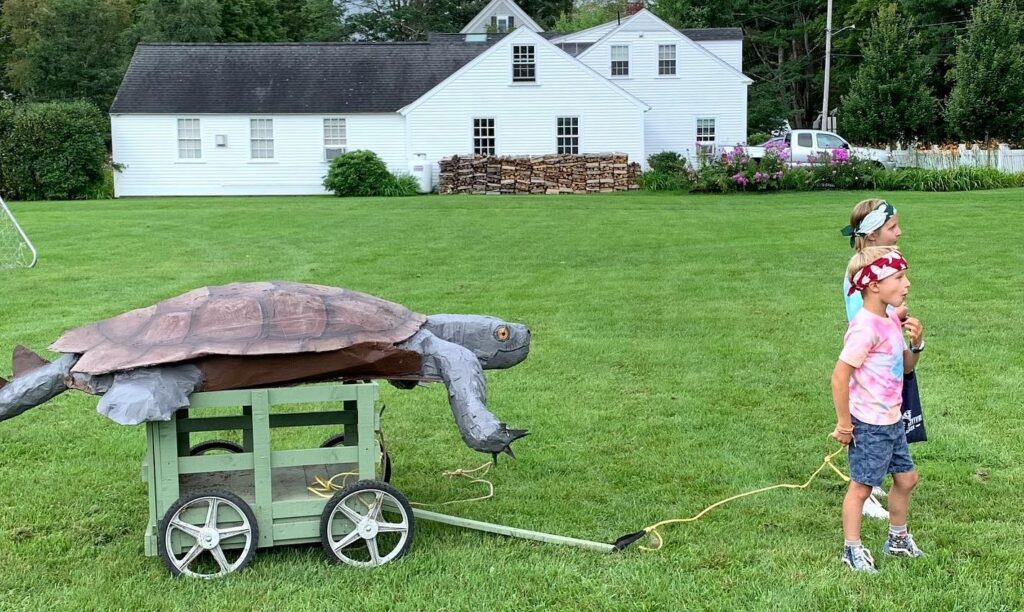
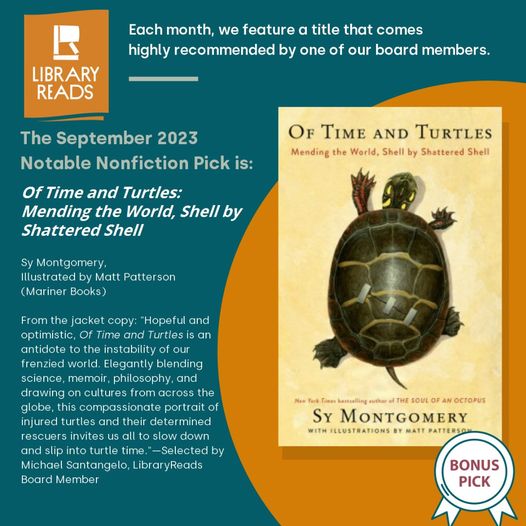
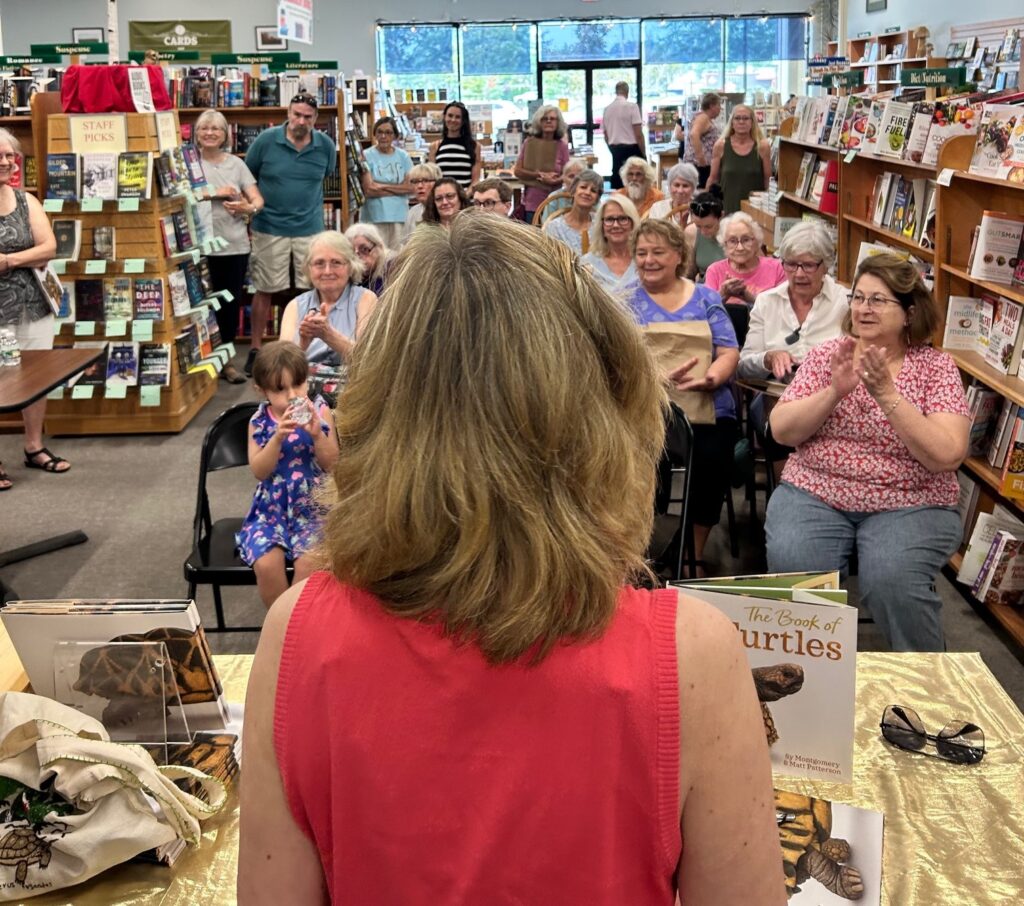
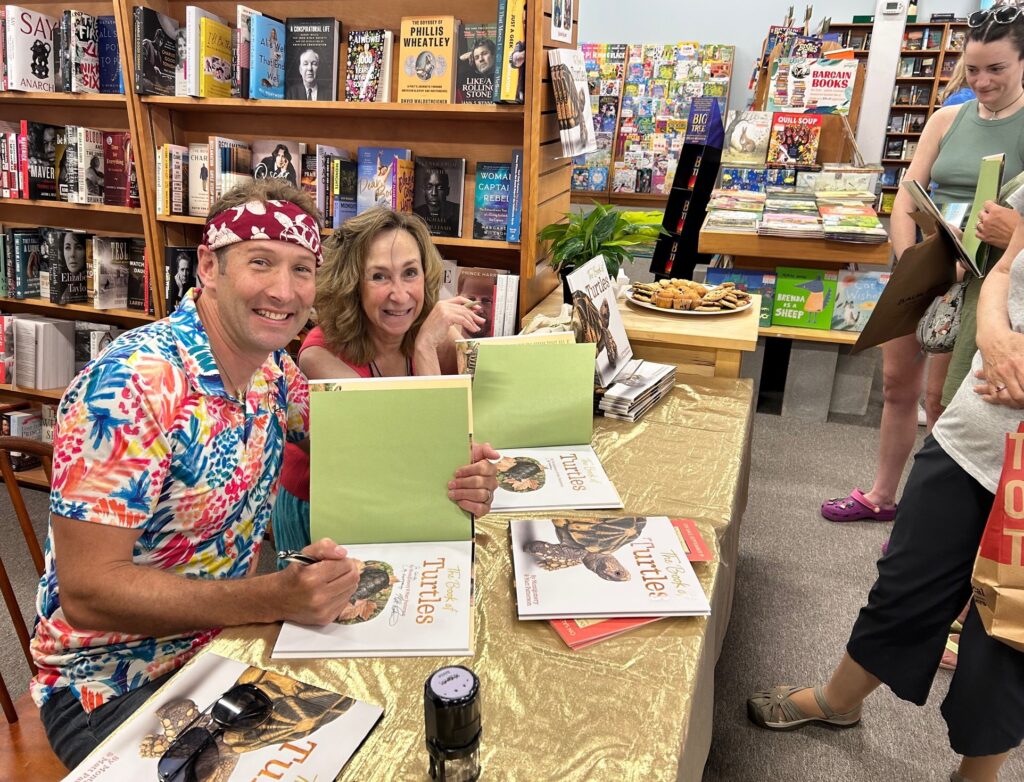
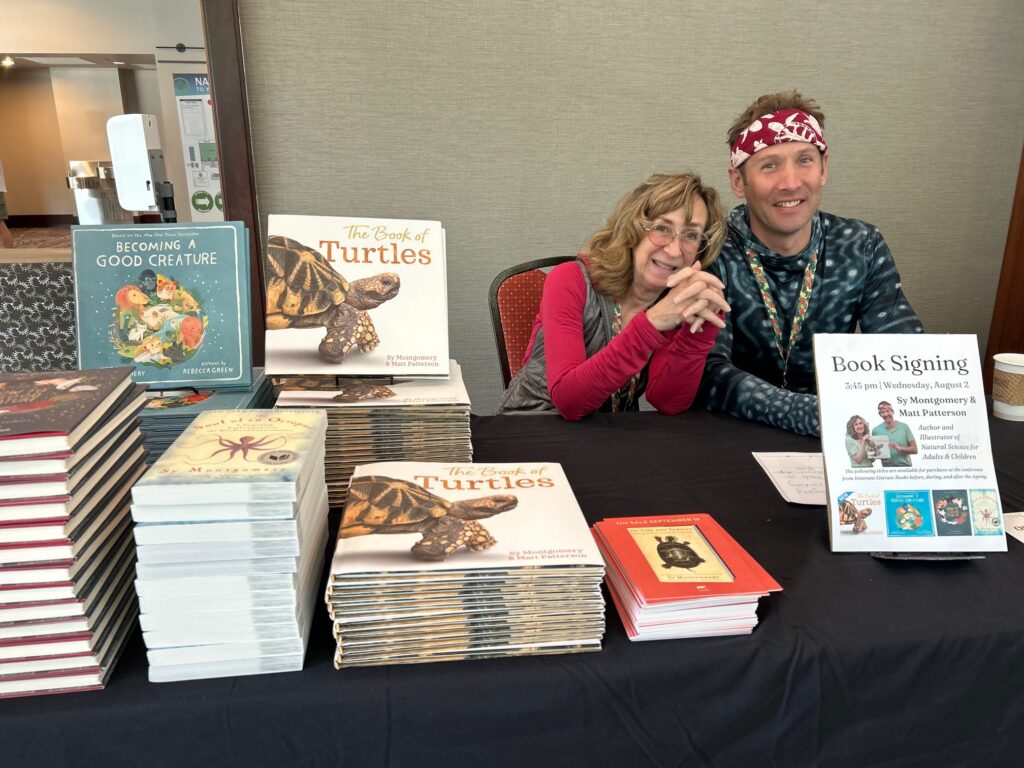
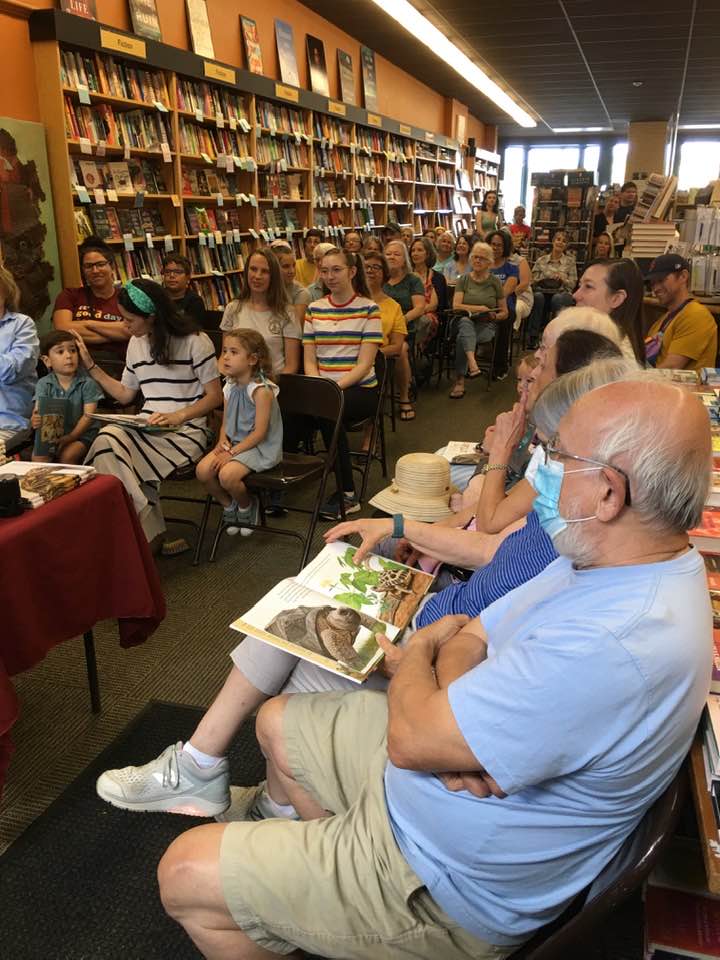 Sy and Matt were welcomed by the turtle faithful at
Sy and Matt were welcomed by the turtle faithful at 

